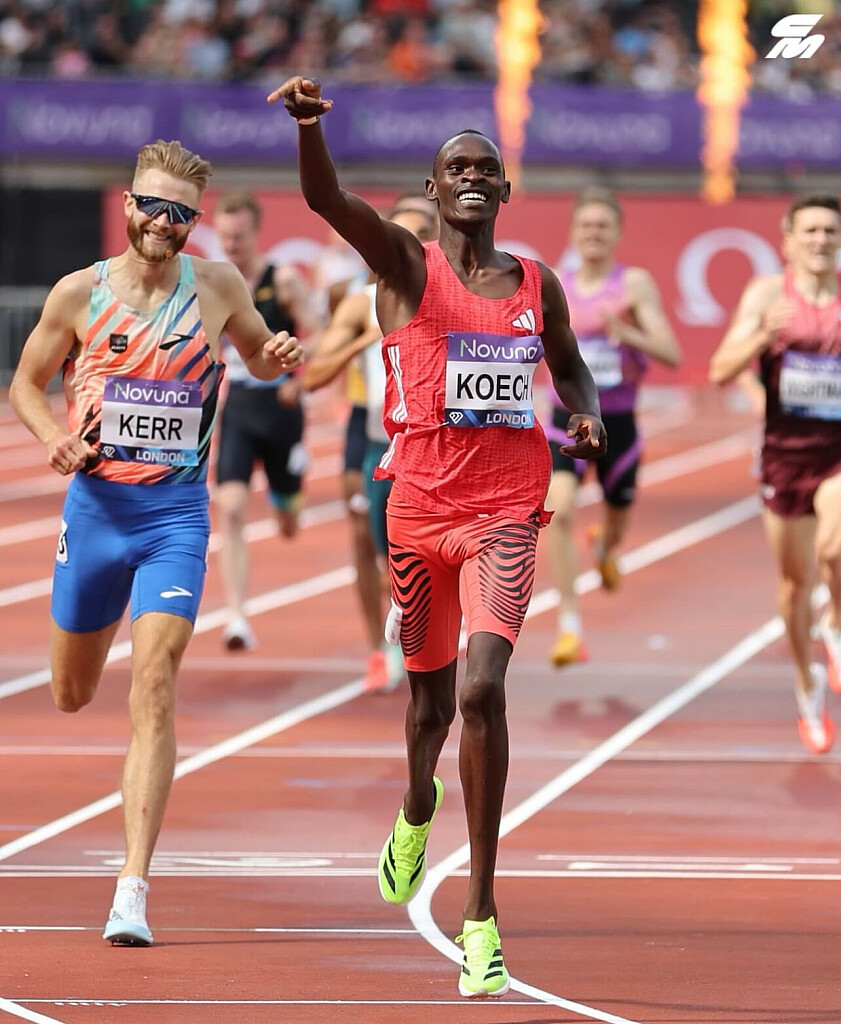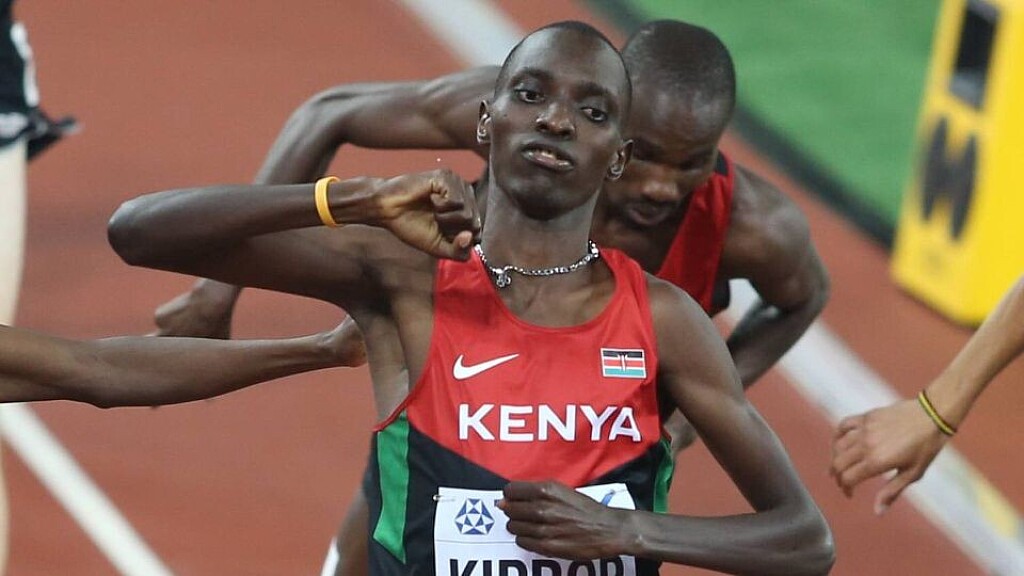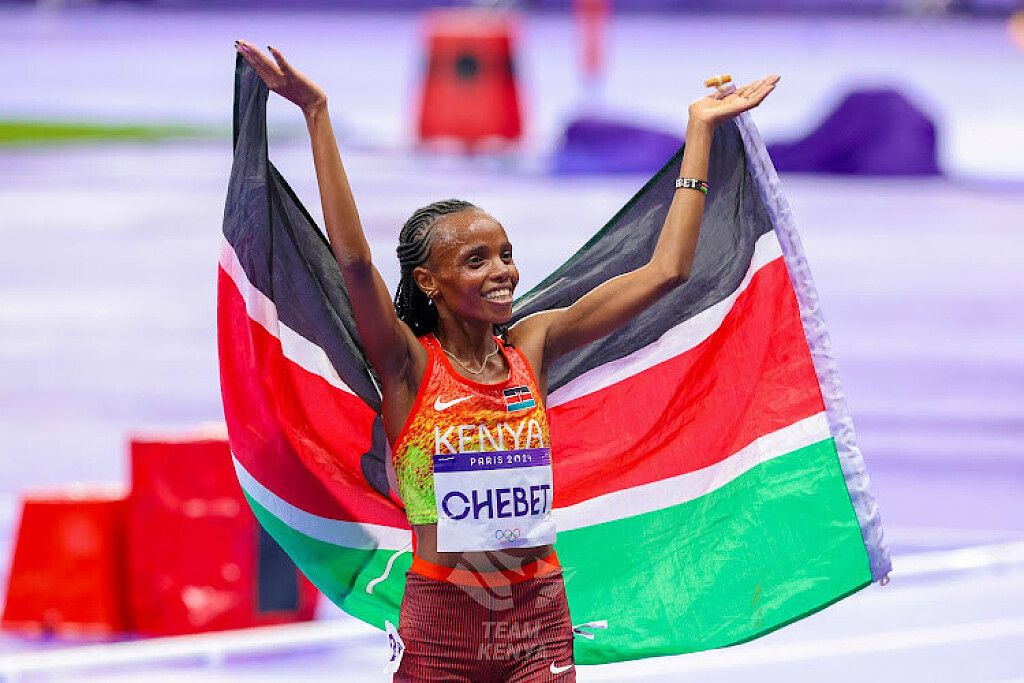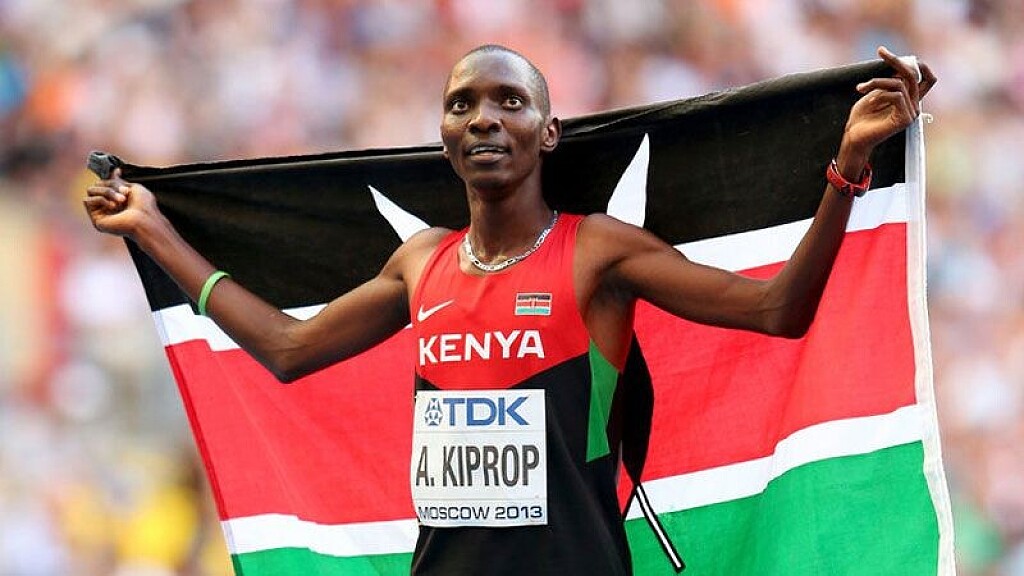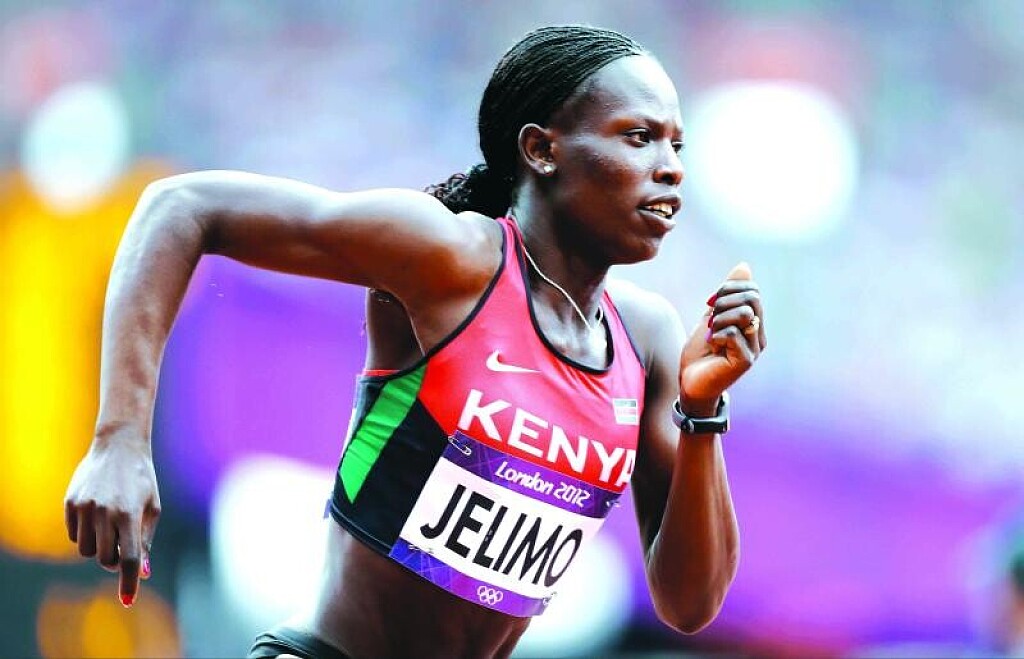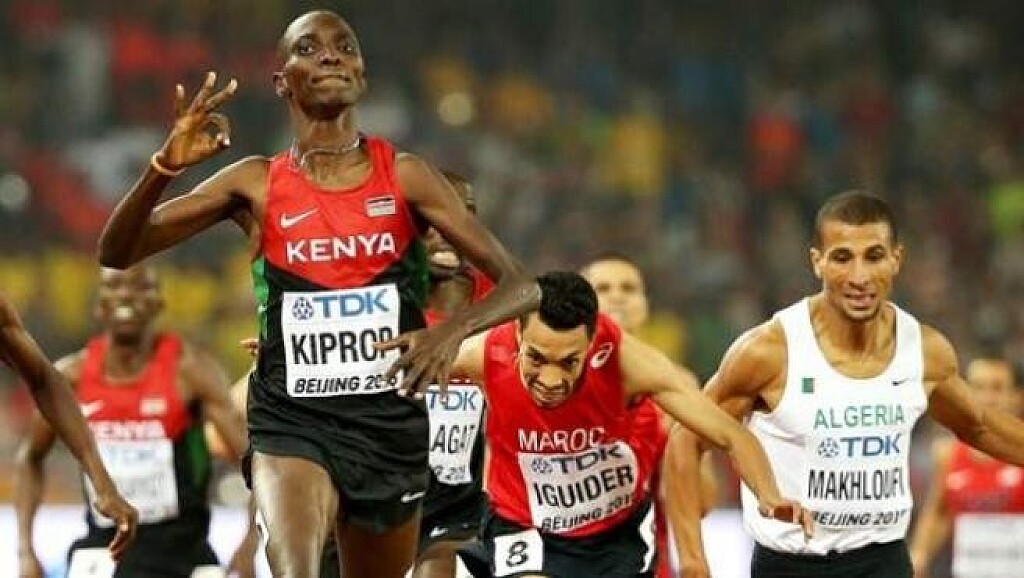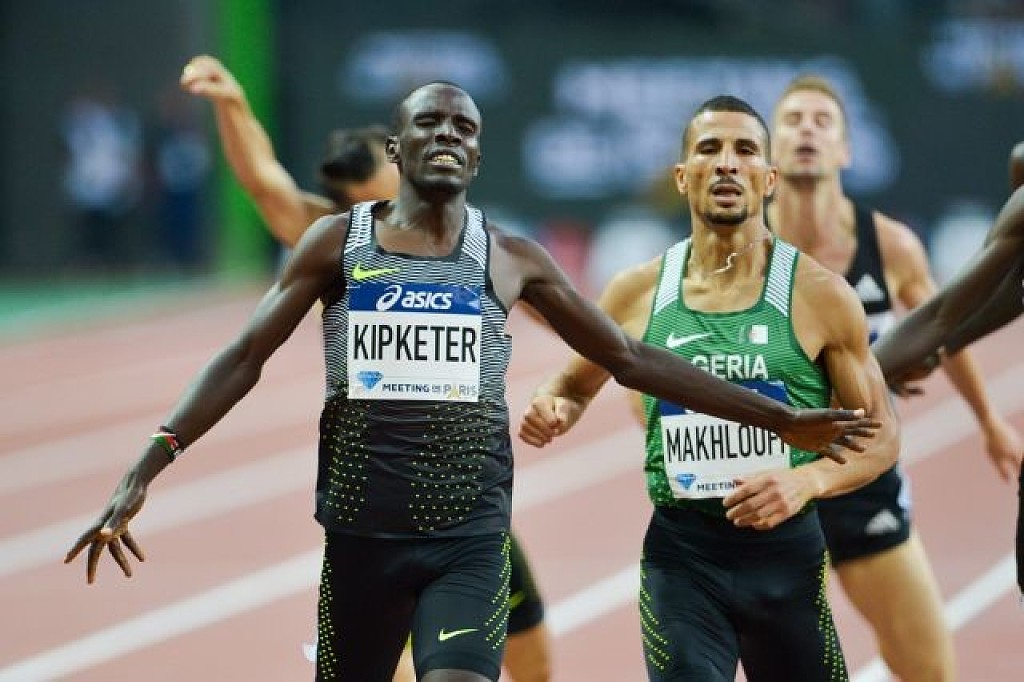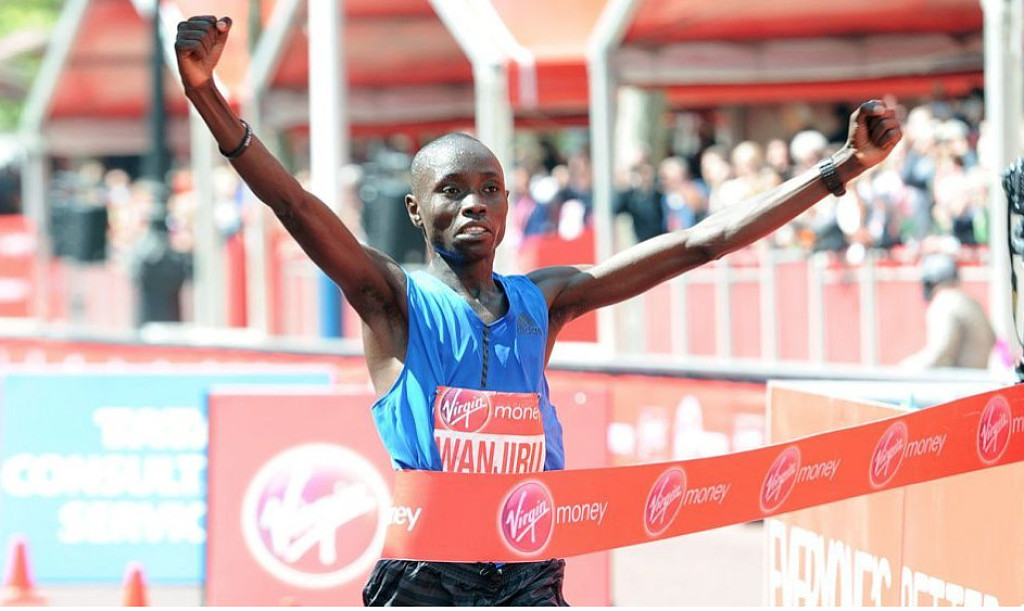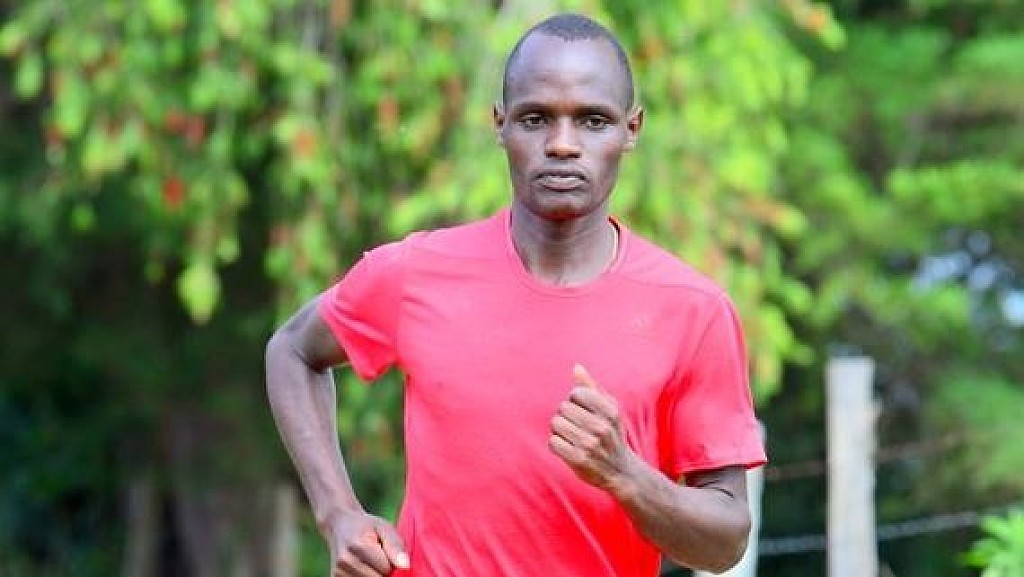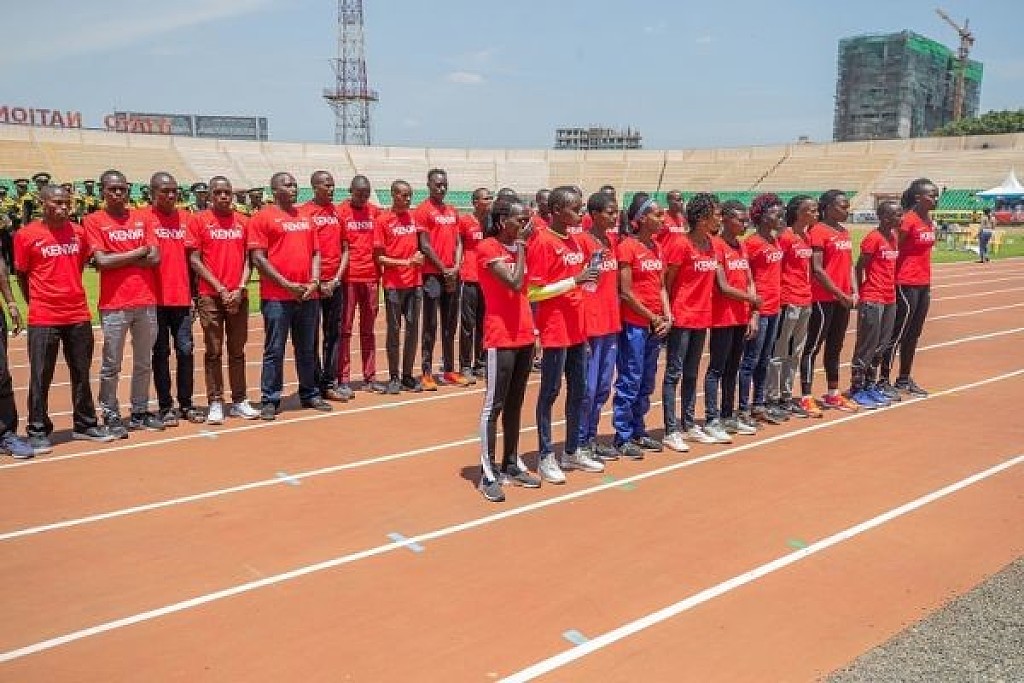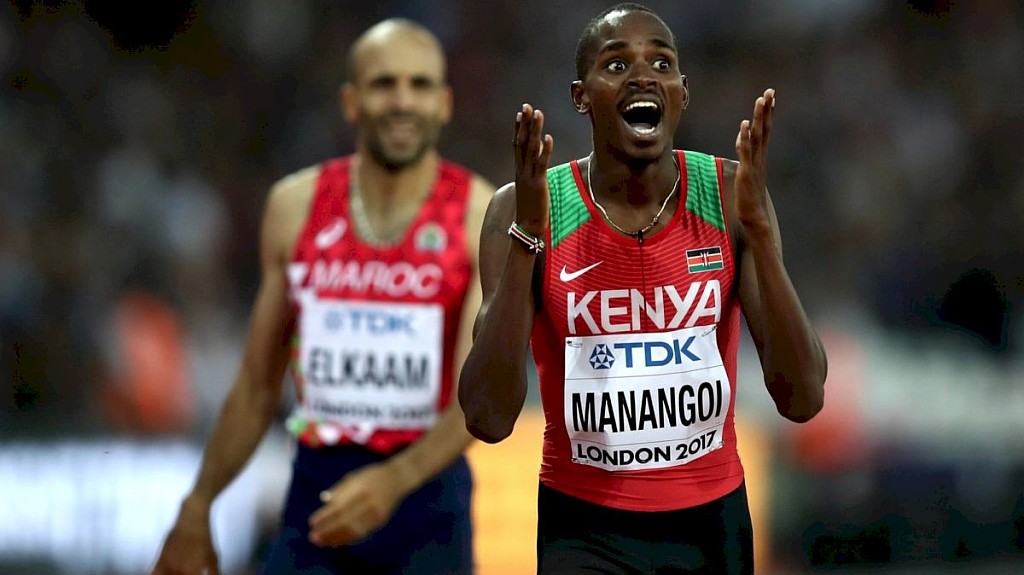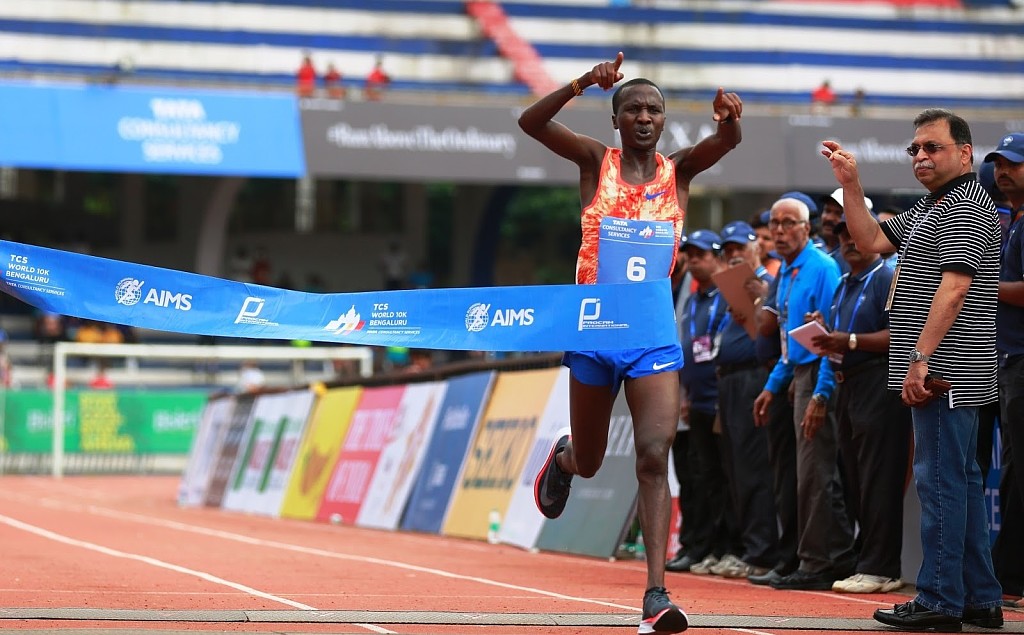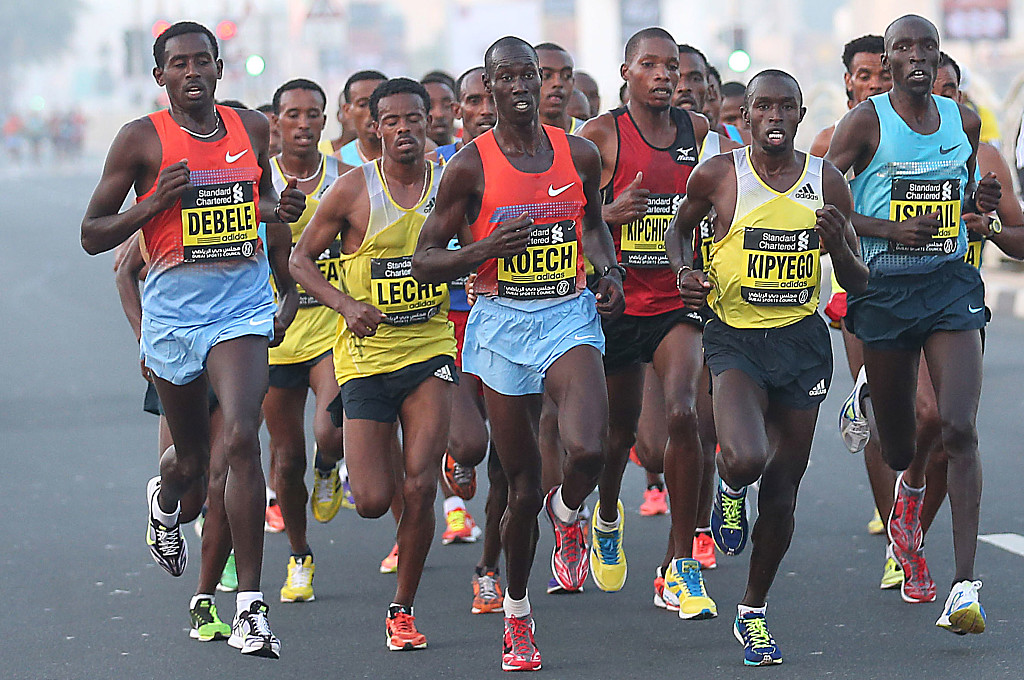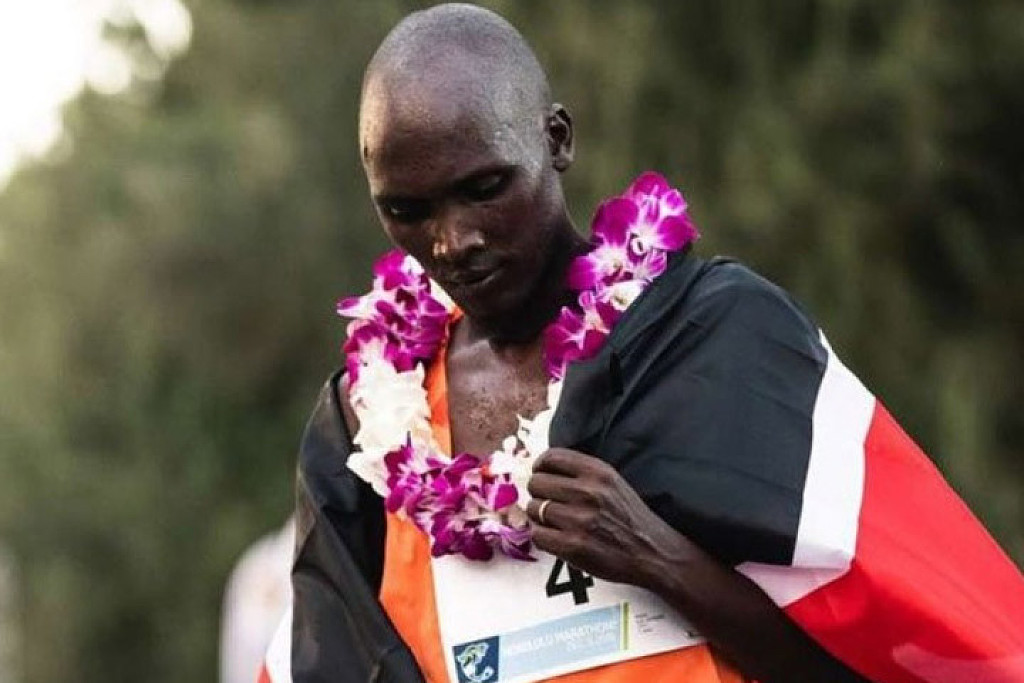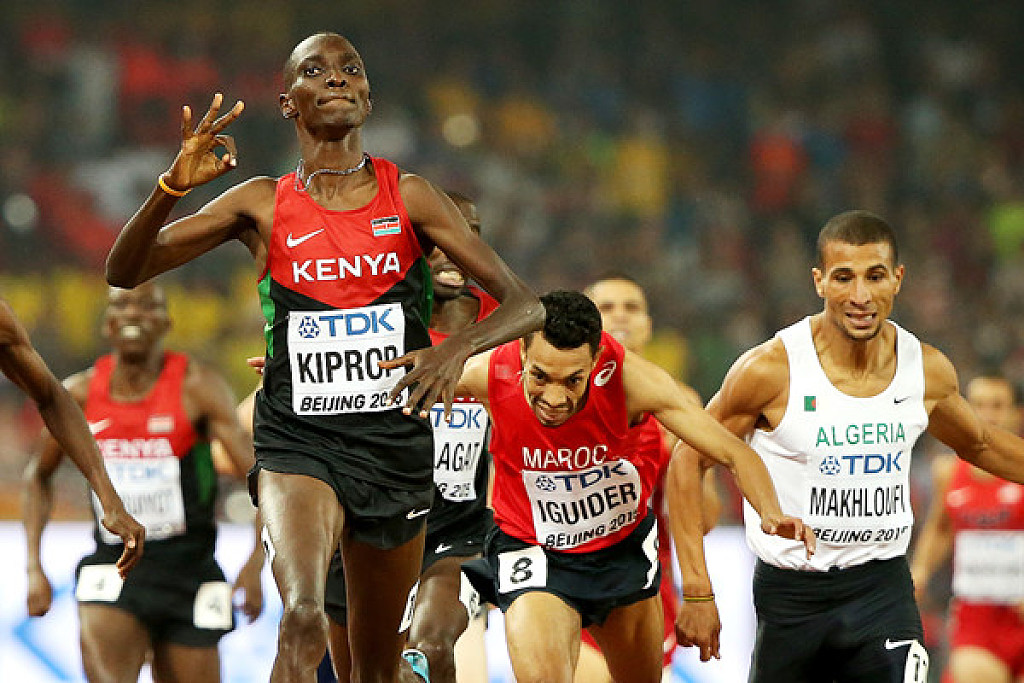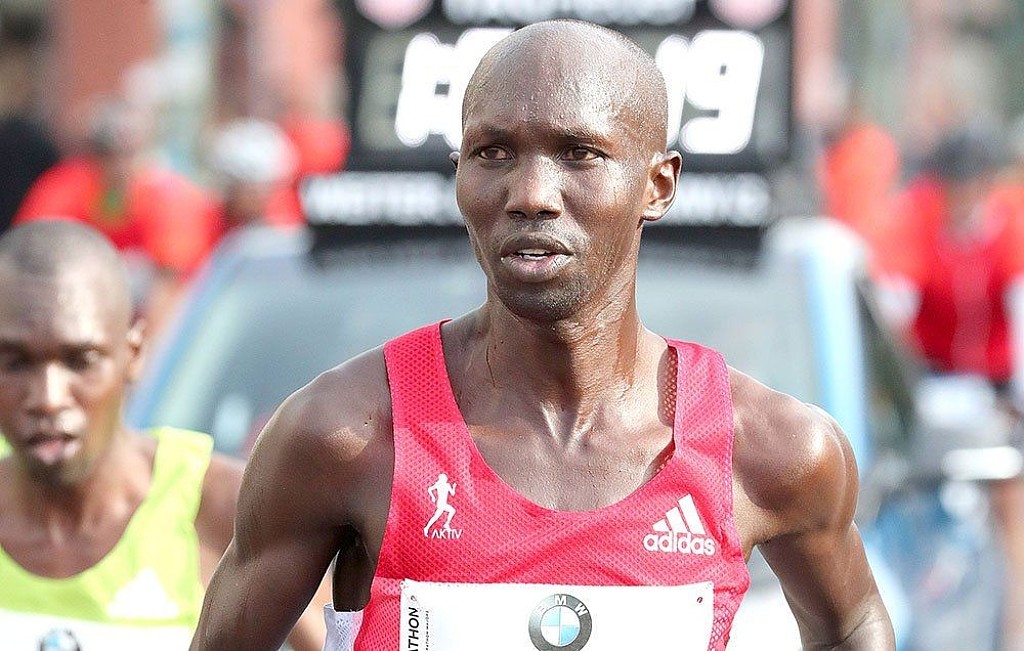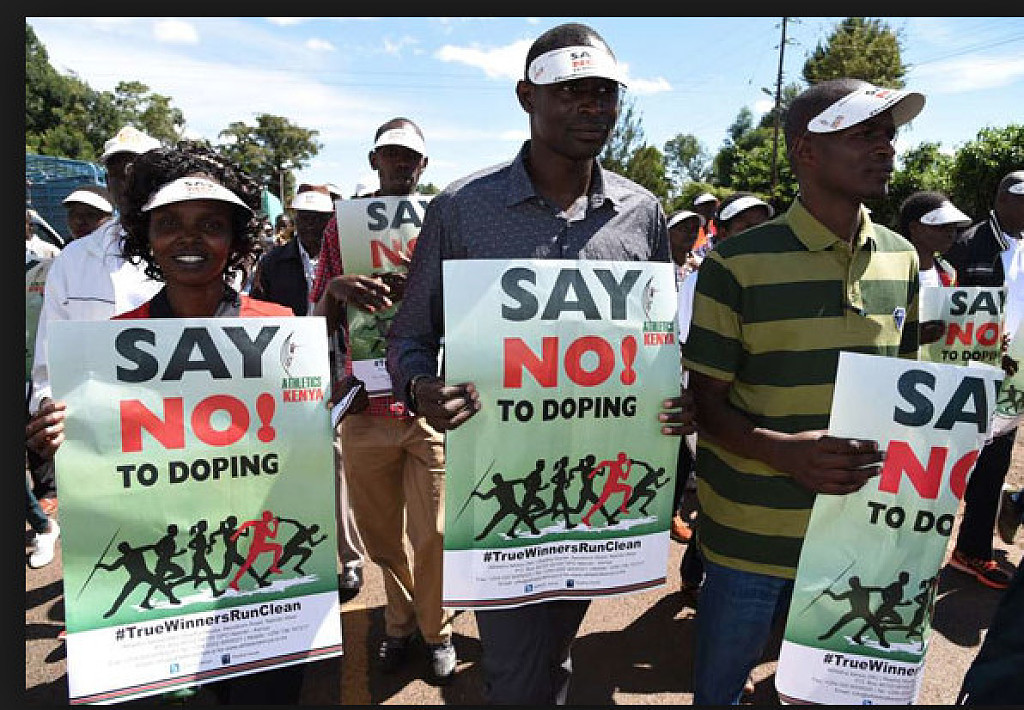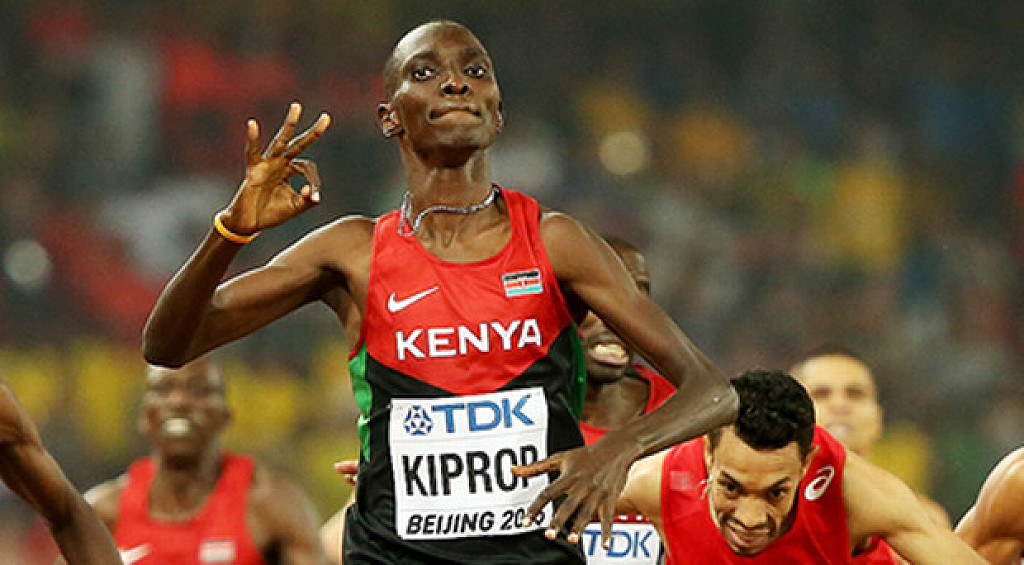Running News Daily
Running News Daily is edited by Bob Anderson. Send your news items to bob@mybestruns.com Advertising opportunities available. Train the Kenyan Way at KATA Kenya and Portugal owned and operated by Bob Anderson. Be sure to catch our movie A Long Run the movie KATA Running Camps and KATA Potato Farms - 31 now open in Kenya! https://kata.ke/
Index to Daily Posts · Sign Up For Updates · Run The World Feed
Articles tagged #Asbel Kiprop
Today's Running News
HISTORIC SEASON FOR PHANUEL KOECH
At just 18 years old, Phanuel Koech has made history—becoming the first Kenyan ever to run under 3:29 for the 1500m twice in a single season.
✅ Paris Diamond League: 3:27.72
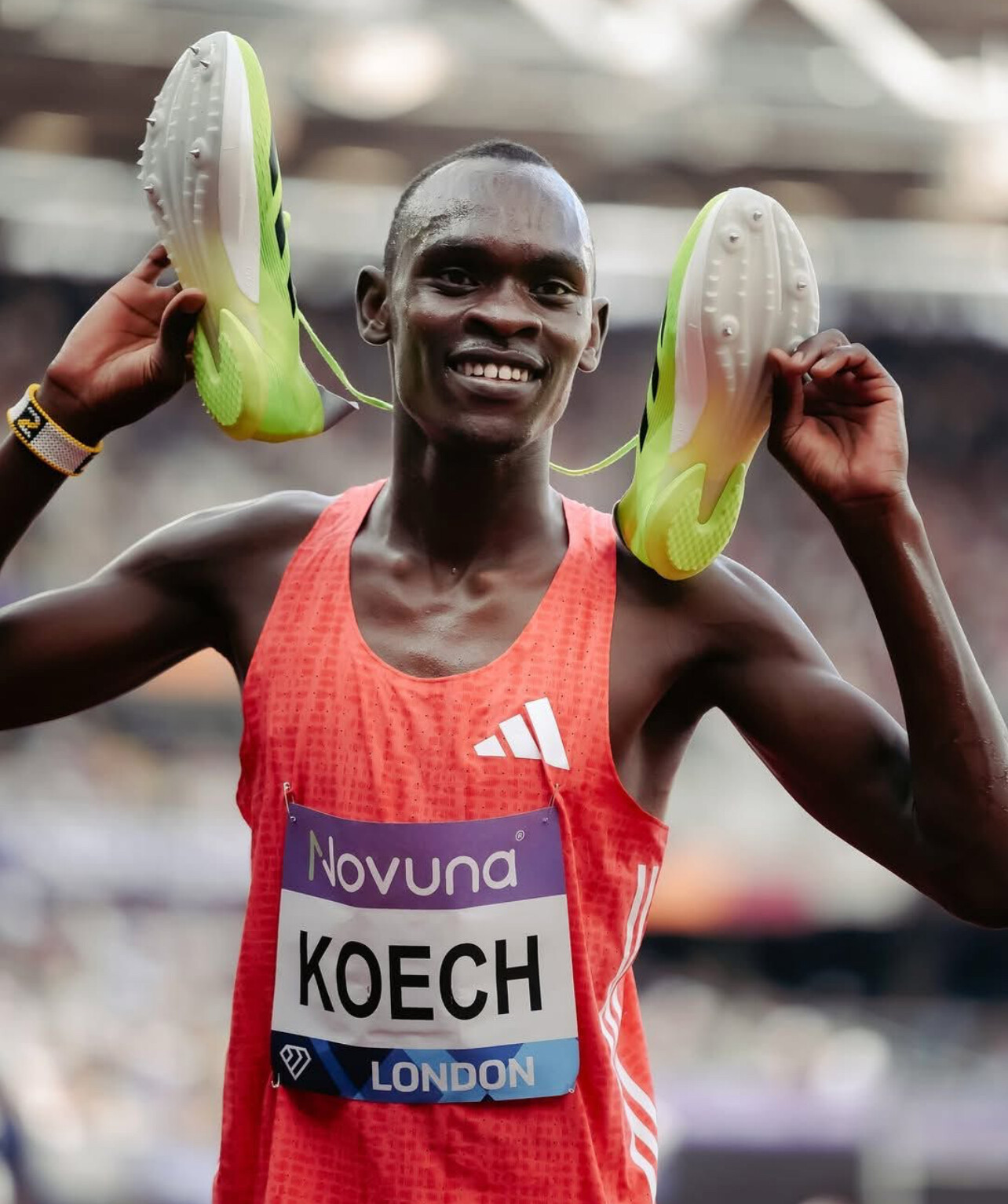
✅ London Diamond League: 3:28.82
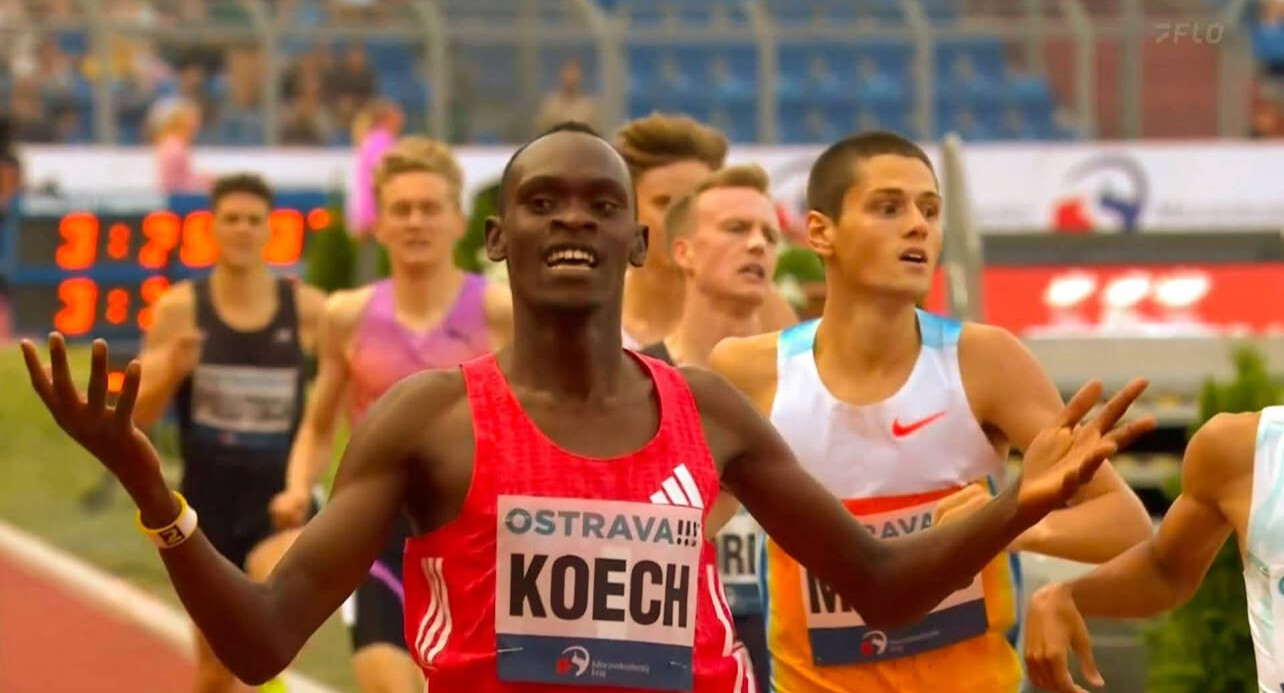
With his 3:27.72 performance in Paris, Koech now ranks as the 4th fastest Kenyan of all time, behind only Bernard Lagat, Asbel Kiprop, and Silas Kiplagat.
He is also the fastest junior (U20) in the history of the 1500m.
Next up:
2025 World Athletics Championships Trials
Sports Complex
July 22, 2025
Kenya’s middle-distance future looks brighter than ever.
by Boris Baron
Login to leave a comment
Asbel Kiprop: Fame, loss and the redemptive journey of a running legend
After a social media post where Asbel Kiprop blamed a woman for wrecking his family and career, friends and mentors intervened helping him refocus seek support and rebuild his life.
A man is often judged by how he faces his battles whether they are on the field, in the boardroom or within himself.
For Asbel Kiprop, Olympic gold medalist and three-time world champion, life was initially a straight sprint to greatness—a journey of triumphs, gold medals and untold success.
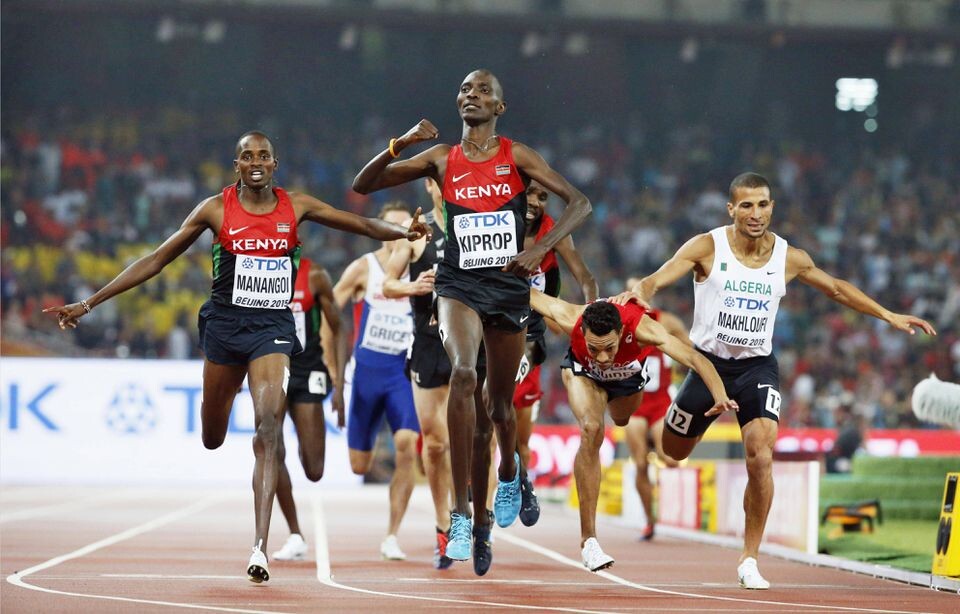
However, when the cheers faded, Kiprop found himself confronted by challenges far more daunting than any he had faced on the track.
In 2018, Kiprop's world came crashing down with a doping scandal that shocked the athletics world.
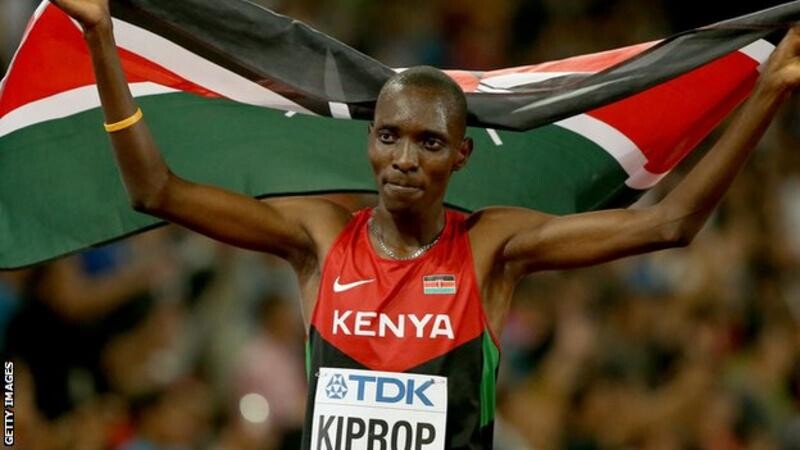
His name, once revered, was suddenly associated with disgrace and scandal as the Athletics Integrity Unit (AIU) imposed a four-year ban after a positive test for the blood-boosting drug EPO.
“I did not know what he was talking about. He said media was reporting that I had been banned for doping. I developed a running stomach. I was shaking…speechless...My heart felt like someone had plucked it," he recalled in a past interview with The Standard.
The news broke him in a way he could never have anticipated, triggering a spiral of sleepless nights, isolation and bitterness as he fought to reclaim his reputation.
The societal expectations placed on Kiprop, like many men, shaped his journey.
As a world-class athlete with a clean record and a respected status in his community the fall from grace was brutal.
Despite his accomplishments, he suddenly felt alone, misunderstood and scrutinized by a world that once cheered him on.
“People I thought knew me were not standing with me. I got very bitter. I wanted someone who would understand my pain; of how I had trained so hard and now I am banned,” he confesses.
It is a sentiment many men can resonate with—the feeling of isolation when life’s challenges intensify and the difficulty of finding true allies in a world where showing vulnerability is often seen as weakness.
In his darkest moments, Kiprop was left grappling not only with the scandal but also with the cost of fame. His career had come with privileges: financial success, fame and adulation from fans.
Yet, fame’s allure had drawn him into a whirlwind of distractions and poor choices, leaving him exposed to criticisms that ranged from accusations of promiscuity to allegations of reckless behavior.
Kiprop admits, “I made some mistakes in life, and I have always taken the consequences.”
For years, he found solace in the familiar: rigorous training, the support of fans, and, in his downtime, friendships that seemed unbreakable. But the scandal unveiled a new reality.
Friendships dissolved, his reputation crumbled and he found himself wrestling with 'depression'.
His struggles, like those of many men, were not immediately visible to the public eye and Kiprop’s cry for help went unheard until a social media post alarmed his followers.
In a raw moment, he hinted at desperation, expressing his pain in a message that prompted intervention from senior officials.
For Kiprop, it was a call to address his pain—a step many men struggle to take.
Now 35, Kiprop is working to regain his place in Kenyan athletics, setting his sights on the World Athletics Championships in 2025.
Kiprop’s message for men facing setbacks in their careers, relationships, or mental well-being is clear: a setback does not define one’s worth. Instead, it is a test of character and resolve.
“I want to start small and win for my employers, the Kenya Police, who diligently stood by me all the four years,” he says in an interview with RFI.
“It is going to be a hard time but… I want to post good times and progressively go up the ladder and qualify to represent Kenya again.”
This season, Kiprop returned to competition at the National Police Service Track and Field Championships, where he won his 1500m heat—a modest yet meaningful step in his quest for redemption.
His performance signals a new beginning for a man determined to rise again not as the prodigious young star he once was but as a seasoned athlete bearing the lessons of both victory and defeat.
by Festus Chuma
Login to leave a comment
What next for Kenya after Paris 2024 Olympic Games
The curtains for the 2024 Paris Olympics fell on Sunday night with Kenya ranking 17th in the world after winning 11 medals.
Despite Kenya topping the African continent with 4 gold, 2 silver and 5 bronze medals, the results left a lot to be desired.
From 83 athletes competing in seven disciplines, a significant impact was expected from the Kenyan athletes and the world.
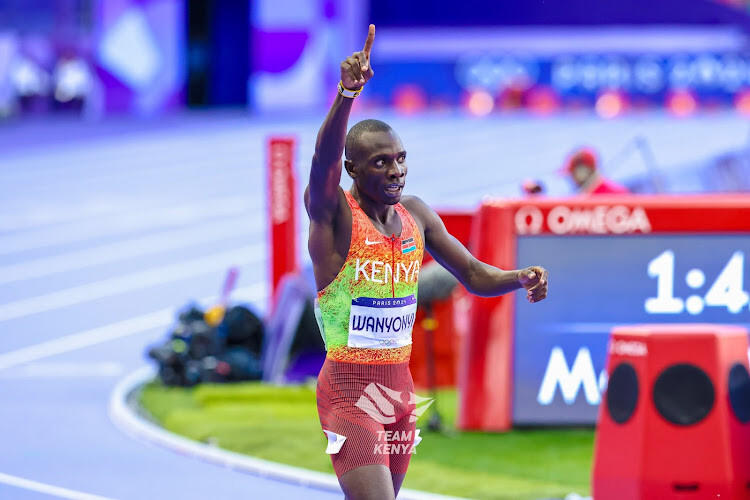
The show started with Judoka Zeddy Cherop falling 10-0 to Portugal’s Patricia Sampao in a record 22 seconds while Fencing African champion Alexandra Ndolo crushed out 13-12 to Ukranian Olena Kryvytska in her debut.
Maria Brunlehner and Ridhwan Mohamed finished 3rd and 4th in the women’s 50m freestyle and Men’s 400m freestyle heats respectively to crush out of contention for a swimming medal.
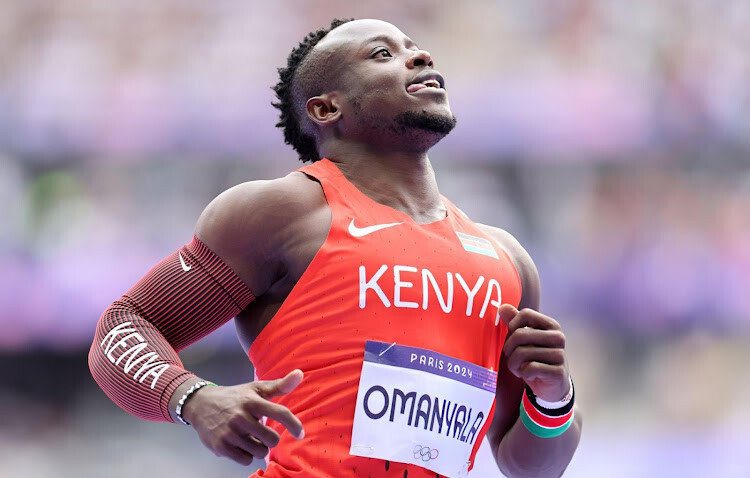
The sevens rugby team also crushed out in the group stage, after going down to Australia, Argentina and Samoa.
The women’s volleyball team booked their next flight after failing to win a single set following three identical 3-0 losses in a tough group B pool comprising Brazil, Poland and Japan.
Paris, the City of Love, had very little affection for Kenya as former world champion Julius Yego, finished a distant 5th in the javelin final with a 87.72m throw, to also bite the dust.
Africa's fastest man, Ferdinand Omanyala's 100m Olympic medal dream was shattered in the semi-finals after clocking 10.08 seconds to finish 8th.
However, Kenya redeemed herself with debutant Beatrice Chebet grabbing double gold in the 5000m and 10000m women’s races.
The best performer was followed closely by Faith Kipyegon who defended her 1500m gold and added the 5000m women’s silver.
Another debutant, Emmanuel Wanyonyi, grabbed the 800m gold, while Ronald Kwemoi struck the men’s 5000m silver.
Mary Moraa, the dancing queen, grabbed the 800m bronze, same as Faith Cherotich (3000m steeplechase) and Abraham Kibiwot (3000m steeplechase).
Hellen Obiri and Benson Kipruto rounded up the bronze tally in the men's and women's marathons.
Obiri failed in her quest for an Olympic medal having won silver in the women's 5000m in Tokyo, 2020 and Rio 2016 games.
History Making
Kenya will however keep pride in making history after Faith Kipyegon became the first woman to complete an Olympic hat trick after breaking her 1500m record in 3:51.29, before a fully packed iconic Stade de France.
Debutant Beatrice Chebet was the best performer entering the history books by winning a double gold in the women's 5000m and 10000m.
The feat makes Chebet the first Kenyan woman to win Olympic 10000m gold for Kenya since the race was introduced in the 1988 Olympics.
She is the third woman after Tirunesh Dibaba and Sifan Hassan to win the 5000m and 10000m double at the Olympic Games.
"I'm dedicating this medal to all Kenyans. I just want to hear my country is proud. This was for you, you were in my mind and heart in every lap; I might have made history but I will sleep better knowing Wananchi wataenjoy the weekend," she said.
Kenya’s legend Eliud Kipchoge failed to complete an Olympic marathon treble after dropping out of the race at the 20km mark.
Kipchoge later confirmed he won’t be running in the Los Angeles 2028 summer games.
“I felt a sharp pain in the stomach and I couldn’t continue. I'm disappointed that for the first time in my career, I failed to finish a race .” Kipchoge said.
Lady luck also smiled on Kenya after Kipyegon's 5000m silver medal was reinstated following an appeal, after a push and shove with Ethiopian nemesis, Gudaf Tsegay, had her initially disqualified.
In the 800m final, Canada appealed against Kenyan winner Emmanuel Wanyonyi's personal best of 1:41.91 in the 800m, claiming he obstructed silver medallist Marco Arop. Kenya won the appeal.
Tokyo 2020
Despite the dismal show in Paris, Kenya had bettered the 2020 Tokyo tally of 10 medals and a 19th spot finish.
The post-Covid games had challenges but Kenya grabbed four gold, four silvers and two bronze medals.
Emmanuel Korir (800m), Faith Kipyegon (1500m), Peres Jepchirhir (marathon), and Eliud Kipchoge (marathon) were the gold medalists while Hellen Obiri (5000m), Fergussin Rotich (800m), Brigid Kosgei (marathon) and Timothy Cheruiyot (1500m) won silver.
Benjamin Kigen and Hyvin Kiyeng won the men's and women's 3000m steeplechase races respectively.
Rio 2016
In the 2016 Rio De Janeiro games, Kenya managed six gold, six silver and one bronze medal for a tally of 13 medals.
Rio 2016 Olympics gold medalists were Jemima Sumgong in women's marathon, David Rudisha in 800m, Faith Kipyegon in 1500m, Conseslus Kipruto in 3000m steeplechase, Vivian Ceruiyot in 5000m and Eliud Kipchoge marathon.
Meanwhile, Vivian Cheruiyot (10000m); Paul Tanui (10000m); Hyvin Kiyeng (3000m steeplechase); Boniface Mucheru (400m hurdles); and Hellen Obiri (5000m) all grabbed silver, while Julius Yego managed a rare javelin silver. Margaret Wambui won bronze in women's 800m.
London 2012
The London 2012 Summer Games saw Kenya manage 2 gold, 4 silver and 7 bronze for a total of 13 medals.
Despite a cold and warm performance in the Queens land, Kenya won two gold medals to finish a distant 29th in the world rankings.
Legendary track masters Ezekiel Kemboi and David Rudisha grabbed gold in the men's 3000m and 800m races respectively.
Sally Kipyegon brought home the women's 10000m silver, while Priscah Jeptoo won the women's marathon silver medal as Vivian Cheruiyot grabbed the women's 5000m race.
Abel Kirui rounded up the silver medals haul after clinching the men’s marathon race.
Vivian Cheruiyot won bronze in the 10000m women's race, while Asbel Kiprop and Milcah Chemos clinched bronze in the men's and women’s 3000m steeplechase.
Timothy Kiptum and Pamela Jelimo clinched the men's and women's 800m race respectively while Thomas Longosiwa and Wilson Kipsang rounded off Kenya's bronze medals haul, winning the 5000m men's and women's marathon races.
What next?
As the nation awaits the Paris 2024 Games report on what worked and what didn't work, a lot will be looked into including preparations, sports science, lack of stadia and lack of funds among others.
However, one constant reminder is that Kenya must smell the coffee, lest our legacy is discarded by the improving rival nations every day.
The next Omanyala, Yego, Obiri and Kipchoge should be nurtured immediately if we are to remain world beaters in the summer games.
Beating the 2008 Beijing Summer Games remains the target, where Kenya sent a total of 46 athletes: 28 men and 18 women who brought home the best tally of six gold, four silver and six bronze medals.
The journey to the Los Angeles 2028 games starts with a new sheriff in town, CS Kipchumba Murkomen, at the helm of the Sports ministry.
by Eric Munene
Login to leave a comment
Paris 2024 Olympic Games
For this historic event, the City of Light is thinking big! Visitors will be able to watch events at top sporting venues in Paris and the Paris region, as well as at emblematic monuments in the capital visited by several millions of tourists each year. The promise of exceptional moments to experience in an exceptional setting! A great way to...
more...Adamant Asbel Kiprop proclaims innocence six years after doping furore
More than five years later, Olympic champion Asbel Kiprop still insists on his innocence and he strongly believes he was framed.
More than five years later, three-time World champion Asbel Kiprop still insists that he is innocent and did not deserve to be banned for a doping offense.
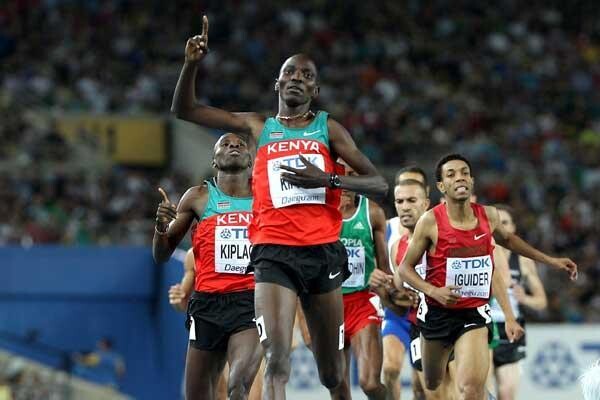
Kiprop shared on his Facebook page, lamenting about the turn of events that saw him land on the wrong side of the Athletics Integrity Unit.
He wrote: “In 2017 Alone I was Tested 19 Times; 3 times in the week of November, that beget a Mysterious AAF of 27th November.”
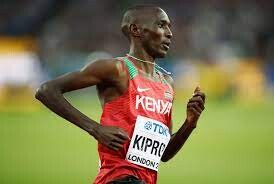
Meanwhile, the 2008 Olympic champion was handed a four-year ban by the AIU after he tested positive for EPO in an out-of-competition test in Kenya in November 2017. Kiprop's suspension was backdated to February 3, 2018, when he was provisionally suspended.
Kiprop fought for his freedom since he explained that he was innocent. On April 12, 2018, Kiprop’s lawyer posted a statement on Facebook that noted that the positive test resulted from a contaminated sample or was flawed.
Since the time of the ban, Kiprop has been vocal about his innocence and insisted that he did not commit any doping offense.
"The decision is not only a blow to me, but it is not good for the sport of athletics. I have been insisting that I did not dope.
"I will continue to maintain my innocence, even if this decision now means I will not be eligible to run again for the next four years,” Kiprop told AFP.
In his defense, Kiprop told investigators that he was provided with advanced notice about the drug test ahead and later made a payment to doping control officials.
It was determined that the advanced notice and the payment did not cause the adverse analytical finding of EPO in Kiprop's drug sample.
by Abigael Wuafula
Login to leave a comment
10 years later: Pamela Jelimo to receive London Olympics bronze
Though out of the public limelight, the history-making Pamela Jelimo is still winning.
Jelimo, the first Kenyan woman to win an Olympic gold medal with her exploits in 800m at the 2008 Beijing Summers Games, is set to receive yet another medal.
Jelimo, the 2008 Africa 800m and 2012 World Indoor 800m champion, who finished fourth in one minute and 57.59 second set to benefit after race winner Mariya Savinova from Russia, was stripped of the gold medal for doping.
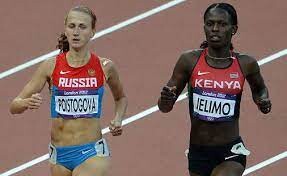
Jelimo, who celebrated her 32nd birthday on December 5, is set to receive her bronze medal from the 2012 London Olympic Games on Wednesday at the National Olympic Committee of Kenya (NOC-K) office, Gallant House, Nairobi.
Legendary Kipchoge Keino, who is an International Olympic Committee (IOC) member alongside NOC-K president, Paul Tergat, will preside over the presentation ceremony.
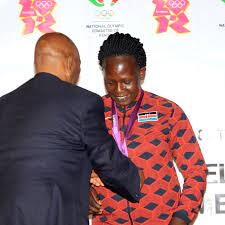
South Africa’s Caster Semenya and another Russian Ekaterina Poistogova, who had settled for silver and bronze, were scaled to gold and silver with their times of 1:57.23 and 1:57.53 respectively.
Kenya’s 2007 World 800m champion Janeth Jepkosgei, who had settled eighth in the race in 2:00.19 and Hellen Obiri, who came eighth in women’s 1,500m at the same Olympics, will receive their certificates.
Another Russian Elena Arzhakova, who finished sixth in 1:59.21 in the same race was also banned for having doped too.
With Savinova and Arzhakova banned, Jepkosgei, who had settled eighth in the race in 2:00.19 was upgraded to sixth.
On November 9, 2015, the Independent Commission Investigation of the World Anti-Doping Agency (WADA) asked for a lifetime ban for doping for Savinova, who had won gold and Poistogova, who had won bronze.
In February 2017, it was announced that Savinova was stripped of her gold medal but Poistogova was suspended in 2017 for two years, backdated to October 2014. Her London result, though, was not affected.
Alysia Johnson Montaño (1:57.93) from the United States of America and Burundi’s Francine Niyonsaba (1:59.63) finished fourth and fifth in the women’s 800m final.
A record four athletes that finished ahead of Obiri, who had settled 12th, were suspended for doping- Aslı Çakır Alptekin and Gamze Bulut from Turkey, who had won gold and silver respectively, Natallia Kareiva of Belarus, who had finished fifth and Russian Yekaterina Kostetskaya, who came sixth.
Maryam Yusuf Jamal (Bahrain), Tatyana Tomashova (Russia) and Abeba Aregawi (Ethiopia) were all scaled to gold, silver and bronze.
Aregwai, who changed allegiance to Sweden was suspended for doping in 2016.
This is the second time Olympics medals or certificates are being awarded in Kenya years later.
Asbel Kiprop received his gold medal from the 2008 Beijing Olympics in Nairobi in 2011 after the winner, Rashid Ramzi , was flagged down for doping.
by Ayumba Ayodi
Login to leave a comment
Asbel Kiprop seeks track comeback as doping ban ends
Kenya's former Olympic and three-time world 1500m champion Asbel Kiprop has vowed to make a successful return to the track after his four-year doping ban elapsed on Wednesday.
Kiprop, 32, was suspended in April 2019 for taking the blood-boosting drug EPO but he has always protested his innocence.
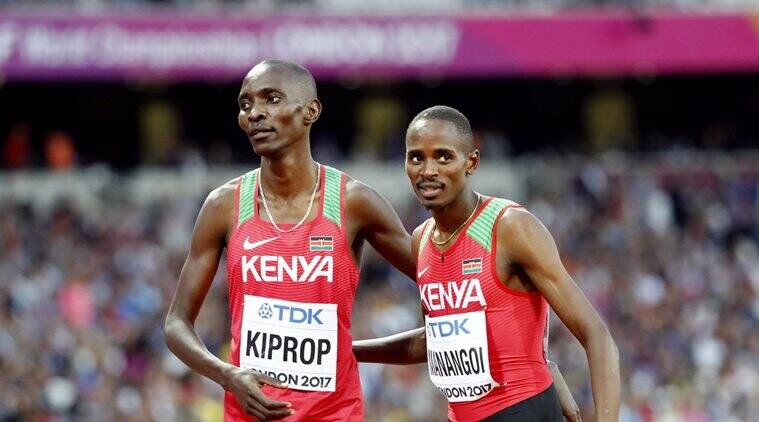
"I was falsely accused of doping. But I have accepted my fate, served my time and now I am ready to return to the track," he told AFP.
He said his main target was the World Championships at Hayward Field, Oregon in June.
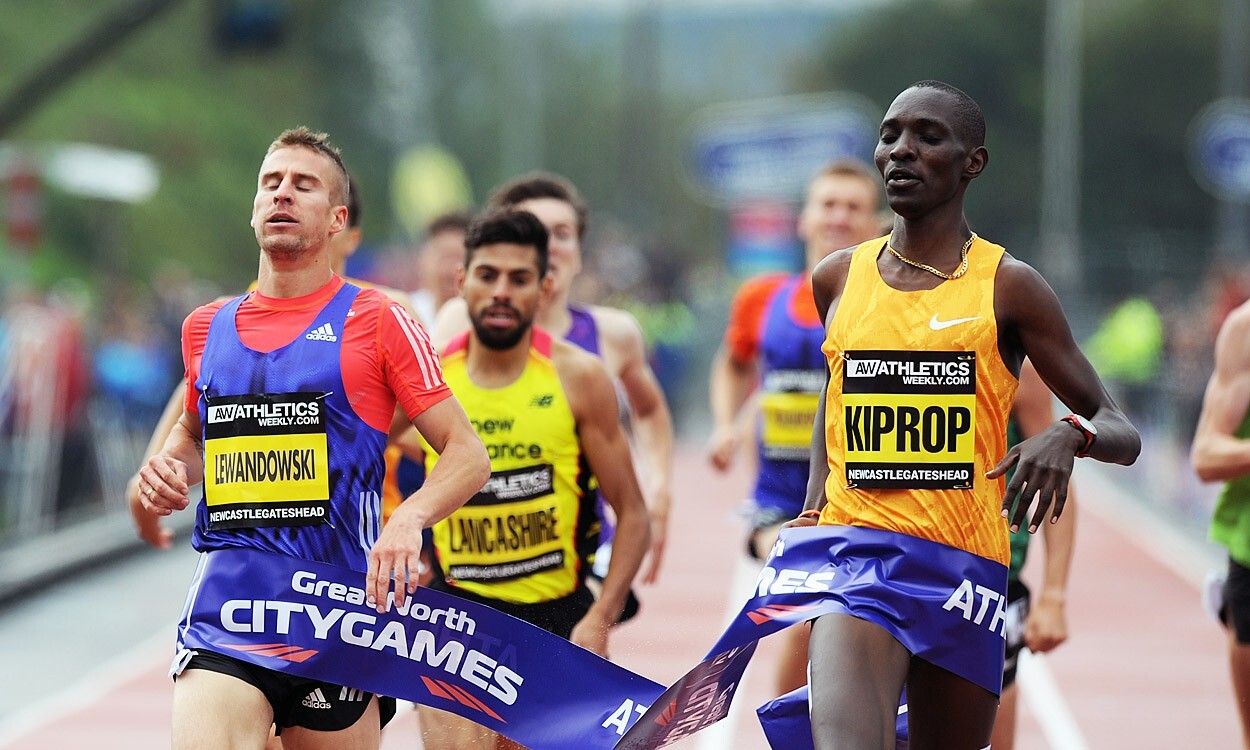
Kiprop became the first Kenyan to win the 1500m gold at the world championships in Daegu, South Korea in 2011.
He went to win two more world titles in 2013 and 2015 to add to the 2008 Olympic gold medal he was awarded after the original winner, Rashid Ramzi of Bahrain, tested positive for doping.
Kiprop, a police chief inspector, said he will make his domestic return at the Kenyan police track and field championships in Nairobi on April 6, where he will seek selection for the national championships and the world athletics trials.
But he will skip the 1500m and instead compete in the 800m, which was his initial event as a junior athlete.
"I want to start small and win for my employers, the Kenya police, who diligently stood by me all the four years," said Kiprop.
"I want to begin like an amateur," he quipped. "It is going to be a hard time since I have to shed my weight by five kilogrammes (11 pounds). I want to post good times and progressively go up the ladder and qualify to represent Kenya again."
"I don't anticipate any opposition from the Kenyan athletics federation, which have in the past refused to accept athletes who have served major doping suspensions from competing for the country due to the negative publicity that accompanies them."
Kiprop said he has undergone four out-of-competition tests since December, and was happy to be back in the approved list of Anti-Doping Association of Kenya (ADAK) accredited athletes.
by
Login to leave a comment
Former world junior 800m champ Alfred Kipketer of Kenya has been banned for two year
Former world junior 800 metres champion Alfred Kipketer of Kenya has been banned for two years after he missed four drugs tests within a 12-month period.
The Athletics Integrity Unit (AIU) confirmed Kipketer accepted he had committed an anti-doping rule violation for whereabouts failures, which rules him out of this year's postponed Tokyo 2020 Olympic Games.
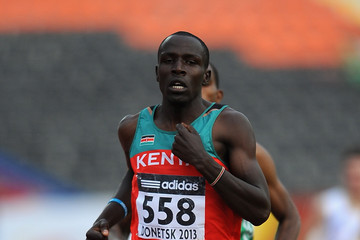
The 24-year-old, a finalist in the 800m at the 2016 Olympics in Rio de Janeiro, missed four tests between November 2018 and September 2019.
He has been suspended from November 26 2019, the date his fourth missed test was confirmed, to November 25 of this year.
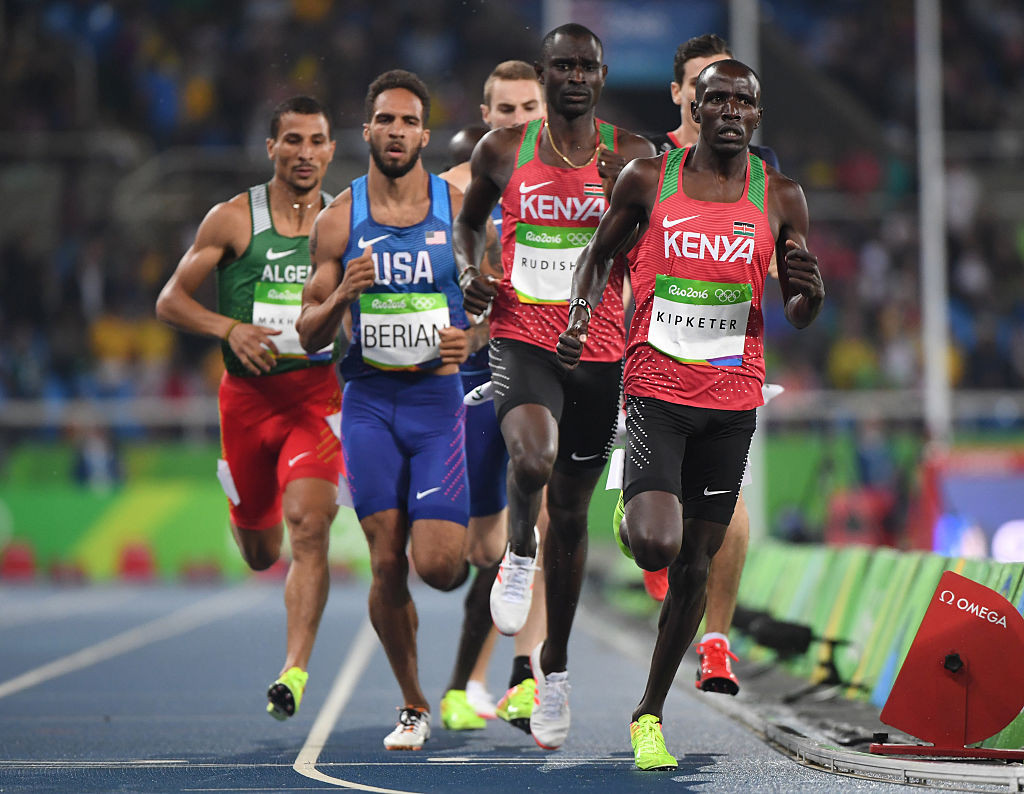
Kipketer, a member of the Kenyan team which won the gold medal in the 4x800m at the 2014 World Relays, failed to provide any explanation for three of the four failures.
He claimed he missed the third test because he had to travel to Nairobi for a family emergency, but the AIU rejected his explanation, stating he had "sufficient opportunity" to update his whereabouts to reflect his change in circumstances.
Kipketer, who also won the world youth title in 2013 and reached the final of the 800m at the 2015 World Championships, is among the more than 60 Kenyan athletes who are serving doping bans.
The AIU had provisionally suspended Kipketer in January, and he has not been able to compete since that date - although many of the events he might have featured at have been cancelled because of the coronavirus pandemic.
Notable names on the list of Kenyan runners currently banned include the 2016 Olympic women's marathon champion Jemima Sumgong and former world marathon record holder Wilson Kipsang.
The 2011, 2013 and 2015 world 1500 metres gold medallist Asbel Kiprop is also banned, as is Elijah Manangoi, who succeeded him in 2017.
Kenya is in the AIU's highest risk category for doping.
by Liam Morgan
Login to leave a comment
Four-year ban for Daniel Wanjiru
Kenyan runner who won London Marathon in 2017 is punished for biological passport violation
Daniel Wanjiru joins the list of high-profile Kenyan runners who have received an anti-doping ban recently.
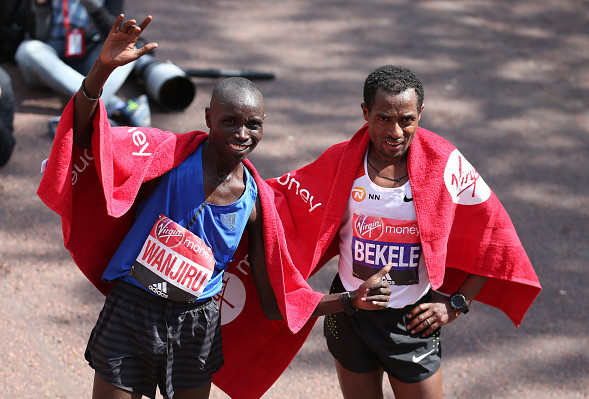
The 28-year-old, who won the London Marathon three years ago, has been given a four-year ban due to biological passport irregularities – a ban which has been backdated to the day of his original suspension on December 9 last year.
This means he will be banned until December 2023, while his results since March 9 last year, which include 11th place in the 2019 London Marathon, have also been disqualified.
The 27-year-old, who beat Kenenisa Bekele to the 2017 London Marathon title, has a marathon PB of 2:05:21, set when winning the Amsterdam Marathon in 2016.
On his biological passport irregularities, a panel said: “That anomaly is far beyond any physiological possible adjustment and by itself carries a very high risk of thrombotic complications, coronary thrombosis and sudden death.”
You can read the full details of the case via the Athletics Integrity Unit here.
“I feel I am already seen as a sinner of doping, but I am not,” Wanjiru said when he heard of his provisional suspension. “I am innocent.”
Other top Kenyan runners currently serving bans include marathoners Jemima Sumgong and Wilson Kipsang plus miler Asbel Kiprop.
by Athletics Weekly
Login to leave a comment
Kenyan runner Patrick Siele banned for fleeing anti-doping staff
Kenyan long-distance runner Patrick Siele has been banned for three-and-a-half years for fleeing from anti-doping officials who were trying to collect a sample, the Athletics Integrity Unit (AIU) said on Thursday.
Siele is the latest in a long line of Kenyan athletes to be sanctioned in recent years, including 2008 Olympic 1,500m champion Asbel Kiprop, former Boston and Chicago Marathon winner Rita Jeptoo and 2016 Olympic marathon champion Jemimah Sumgong.
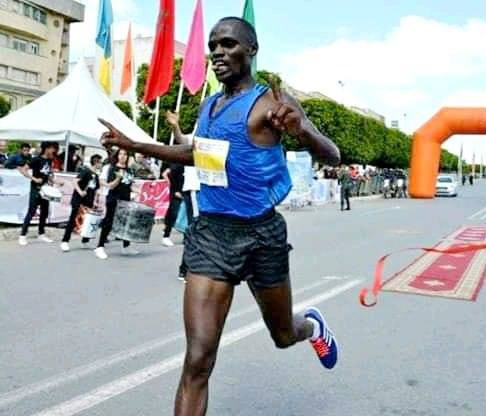
Former 1,500 metres world champion Elijah Manangoi, who is also from Kenya, was provisionally suspended in July for missing three tests under the whereabouts rule.
The AIU global disciplinary body said in a statement that Siele ran away from anti-doping personnel and an independent witness confirmed he "hurdled a fence to escape from the compound" in Kapsabet in west Kenya on Dec. 18 last year.
His sanction has been backdated to March 16, 2020.
Siele's ban was initially set for four years but was reduced by six months after he "promptly admitted the violation".
"The AIU... agreed to a six month reduction in the sanction, taking into account... that this was his first experience of out-of-competition testing and his relative lack of anti-doping education which may have contributed to his error of judgment on the day," the AIU said.
Siele, who clocked 2hr 10 min and 42 sec in the Shanghai Marathon last year, is not one of the world’s elite, but his ban is another embarrassment for Kenya. This brings the total to 66 runners banned now.
Login to leave a comment
Kenya commits to new World Athletics' anti-doping program
Kenya is backing World Athletics' (WA) new testing program that was launched on Tuesday targeting top road runners in marathon, half-marathon and long distances.
With the running calendar slowly resuming amid global COVID-19 setbacks, WA's anti-doping watchdog Athletics Integrity Unit (AIU) is stepping up measures to increase testing of athletes in Kenya.
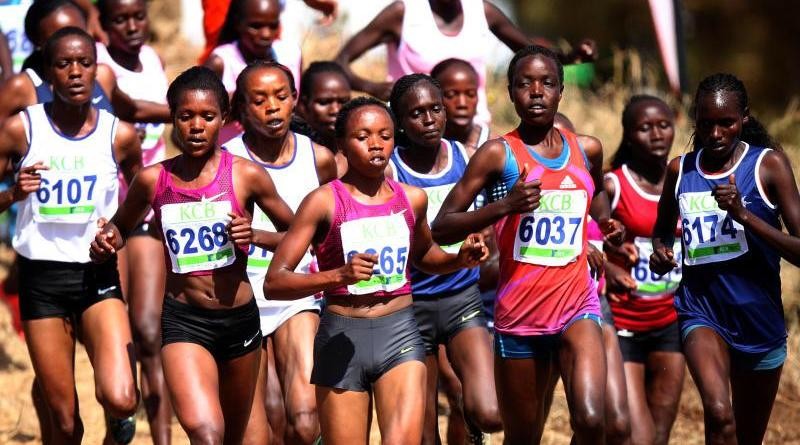
Kenya which currently has laws to criminalize doping in the country, has been embroiled in doping scandals involving its top runners.
Some of the country's top athletes serving sanctions for the doping offices includes 2008 Beijing Olympics 1,500m champion Asbel Kiprop, 2016 Rio Olympics women's marathon champion Jemimah Sumgong, and former three-time Boston Marathon champion Rita Jeptoo, among others.
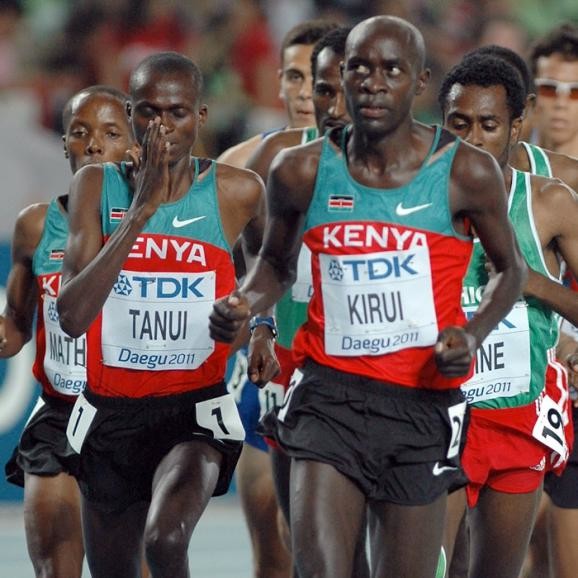
"We have been informed that the AIU is going to organize a number of group testing sessions specifically for road runners. The sessions will be held at a number of locations across Kenya during September," the country's athletics running governing body Athletics Kenya said in a statement on Thursday.
"Athletics Kenya is providing them with all the required logistical support for a smooth and safe conduct of these activities in line with health guidelines of our government. We are hundred percent committed to supporting the AIU in its aim of protecting the integrity of our sport," it said.
The group testing sessions will include some advance-notice testing, where the main focus will be on building the profiles of athletes for the Athlete Biological Passport (ABP) program.
The samples collected from these athletes will be used to establish the initial values for their ABP profiles before regular non-notice target testing resumes on a much more extensive basis in 2021.
Login to leave a comment
Elijah Manangoi, the 2017 World 1500m champ, provisionally suspended
Elijah Manangoi, became the latest Kenyan to be suspended over anti-doping violations.
Manangoi has been provisionally suspended in a case of whereabouts failures, the Athletics Integrity Unit, track and field’s doping watchdog organization, announced Thursday. Athletes must provide doping officials with their whereabouts, or locations to be available for out-of-competition testing.
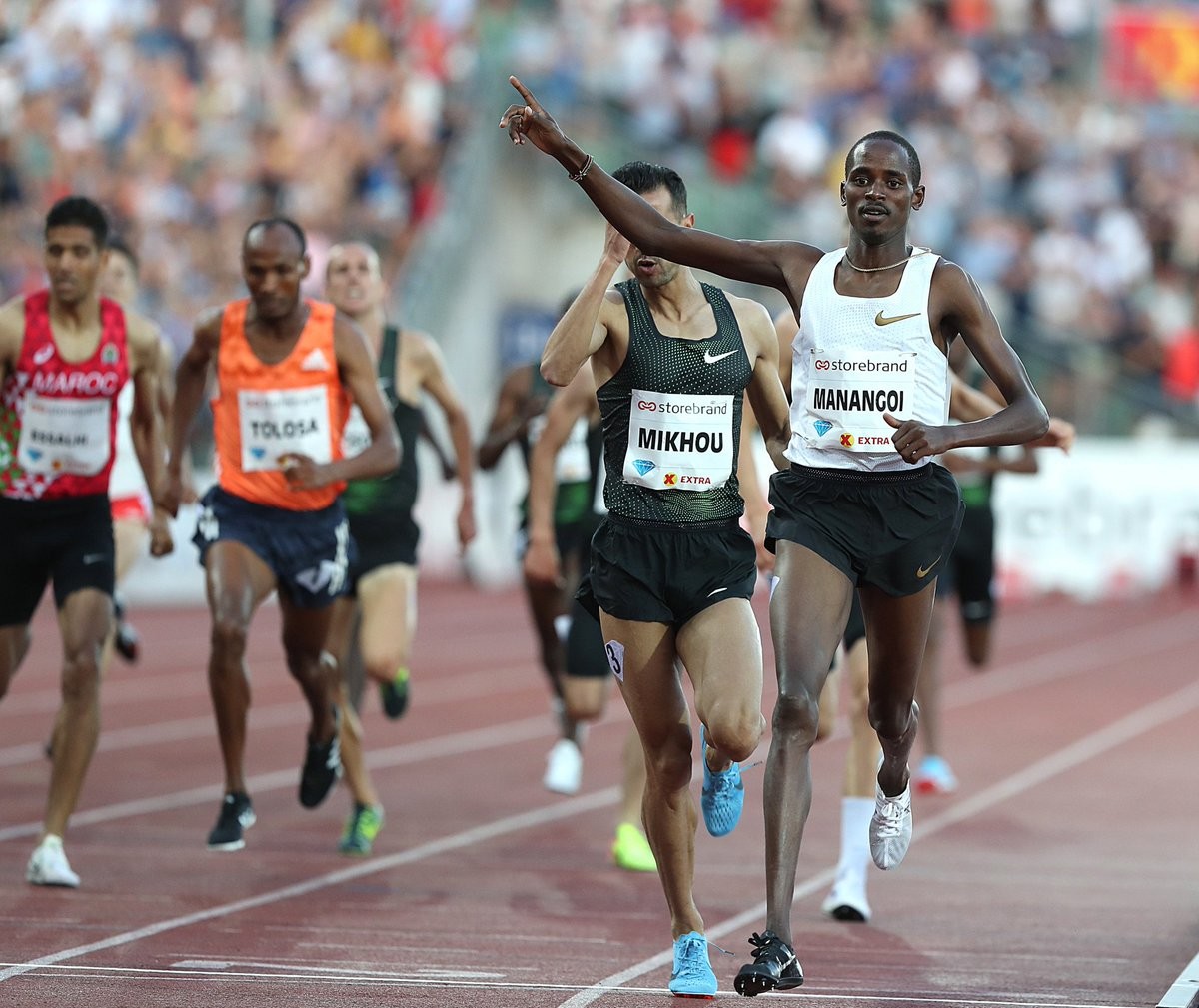
Three missed tests in a 12-month span can lead to a suspension, even if an athlete has never tested positive.
The Athletics Integrity Unit did not disclose details about Manangoi’s case, such as if or when he has a hearing to determine anything beyond the provisional ban.
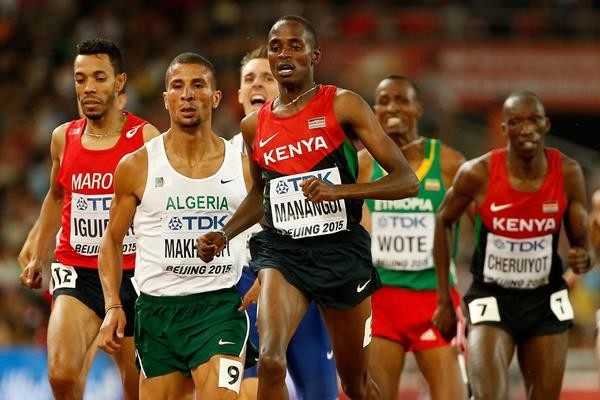
Manangoi was unable to defend his world title in 2019 due to injury. Since July 2017, he is the only man to defeat Kenyan Timothy Cheruiyot in the 1500m, doing so five times. Cheruiyot won the 2019 World title and is the Olympic favorite.
Other Kenyan distance-running stars have been banned in recent years for failing drug tests.
Rita Jeptoo had Boston and Chicago Marathon titles stripped, and Jemima Sumgong was banned after winning the Rio Olympic marathon after both tested positive for EPO. Asbel Kiprop, a 2008 Olympic 1500m champion and a three-time world champ, was banned four years after testing positive for EPO in November 2017.
Wilson Kipsang, a former marathon world-record holder, was earlier in July banned four years for whereabouts failures.
Login to leave a comment
Kenya's Alex Korio handed two-year doping ban
Kenya's Alex Korio will have to refund the prize money he won at the Beach to Beacon 10km road race in Cape Elizabeth in the U.S. after the Athletics Integrity Unit (AIU) found him guilty of a doping offense.
The 30-year-old Korio, who had finished eighth during the Jianzhen International Half Marathon in Yangzhou, China, had been slapped with a provisional suspension in May after he failed three whereabouts cases and missed planned anti-doping tests.
He was allowed to defend himself before the AIU, but his submission failed to convince the officials.
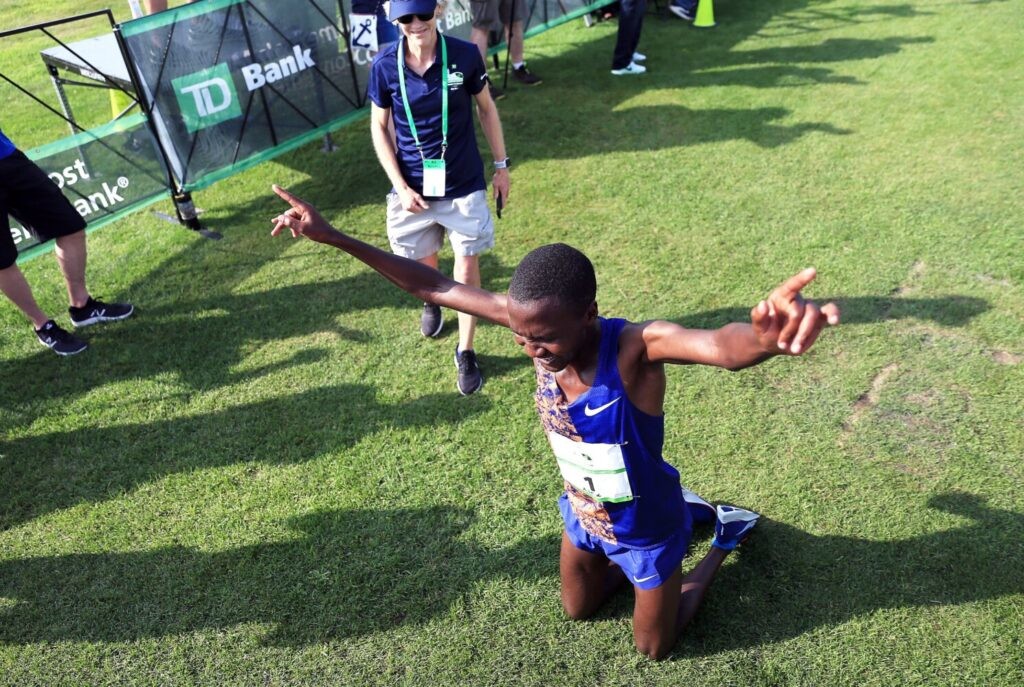
"The athlete failed to respond and to provide any explanation concerning the apparent three missed tests," said the AIU in a statement on Friday.
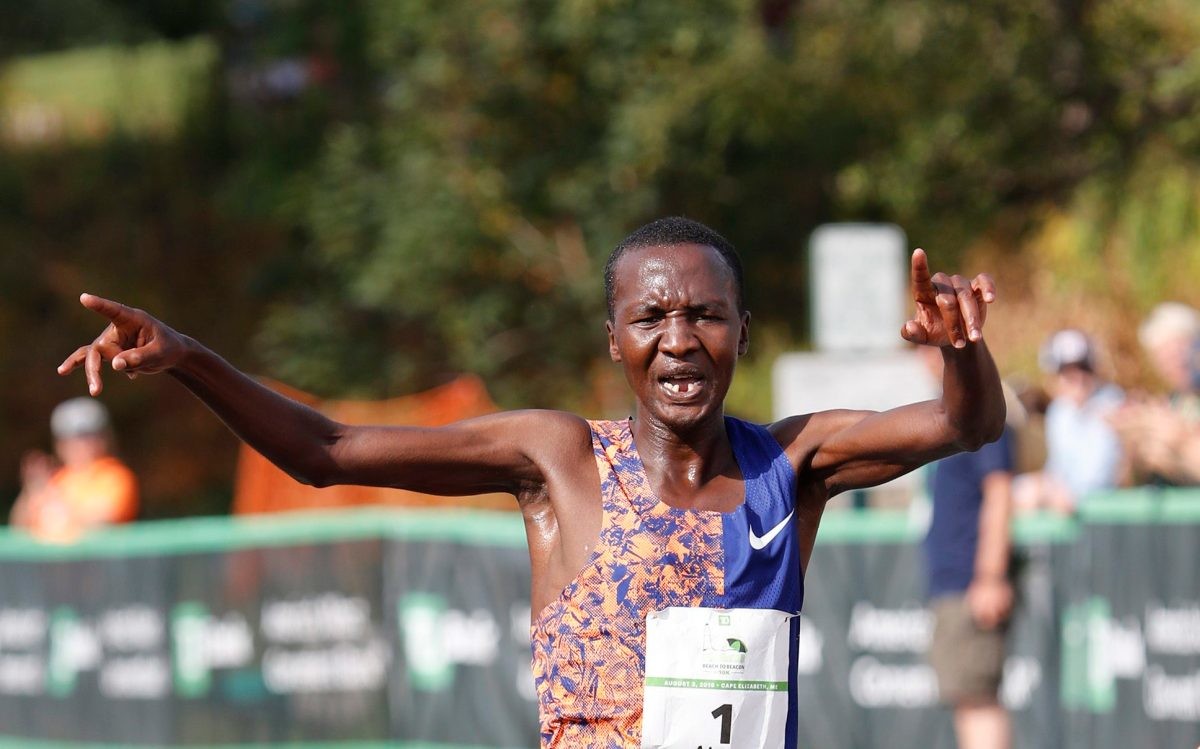
He has since been handed a two-year ban from all sports competition effective July 19, 2019. The ban will end on July 19, 2021.
However, the AIU ruled that Korio will face the bane of forfeiture of any titles, awards, medals, points, prizes and appearance money which he may have earned starting July last year.
Korio becomes the 55th athlete from Kenya to be banned in five years, joining a ballooning list that includes former World Marathon record holder Wilson Kipsang, Olympic marathon champion Jemima Sumgong, Rita Jeptoo, the Boston and Chicago marathon champion and Asbel Kiprop, the former World 1,500m champion.
Korio had missed scheduled tests on Jan. 20, April 11 and July 19, 2019. This year alone, Kenya has also seen former world marathon record holder Wilson Kipsang, Kenneth Kipkemoi, Mercy Jerotich, James Kibet and former world junior 800m champion Alfred Kipketer suspended and charged for whereabouts failures by the AIU.
"In short, athletes violate the anti-doping rules when they have any combination of three missed tests or filing failures within any 12-month period. That period beginning on the day of the first relevant missed test or filing failure," the AIU said.
A missed test means a failure by the athlete to be available for testing at the location and time specified in the 60-minute time slot identified in his whereabouts filing for the day in question. A filing failure is to make an accurate and complete whereabouts filing that enables the athlete to be located for testing at the times and locations set out in the whereabouts filing.
Login to leave a comment
Kenyan runners call for Athletics Kenya to provide services to help athletes
Last week, two Kenyan distance runners were suspended by the Athletics Integrity Unit for anti-doping violations. This added to the already long list of Kenyan athletes to receive anti-doping sanctions in 2020, which includes 2017 London Marathon champion Daniel Wanjiru and former marathon world record-holder Wilson Kipsang.
According to a Daily Nation report, these latest suspensions have prompted athletes to call for Athletics Kenya to start a support program with counselling for athletes dealing with depression, whether it was caused by doping bans, loss of fame or other life stressors.
Asbel Kiprop is an Olympic and world champion in the 1,500m, and in 2019, he was banned from competition for four years following a failed test in 2017. Kiprop has been adamant that he is innocent, and in the fallout from his doping scandal, his life took a downward spiral.
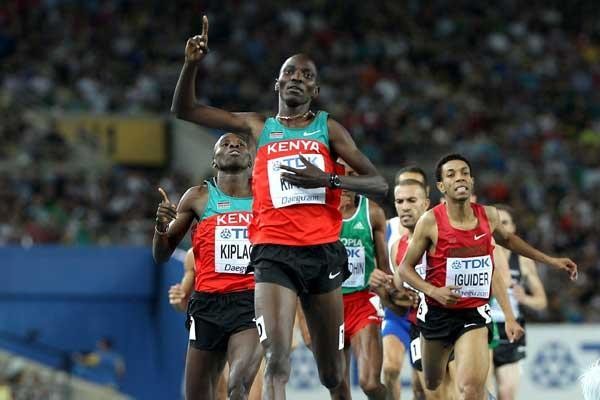
“I became an alcoholic, my wife left and friends deserted me,” he said. “I never planned to end my athletics career this way.” Kiprop, who tested positive for EPO, said he plans on returning to professional racing after serving his ban.
Jemima Sumgong, another Kenyan marathoner who was banned for doping, described a similar fall from grace after also testing positive for EPO.
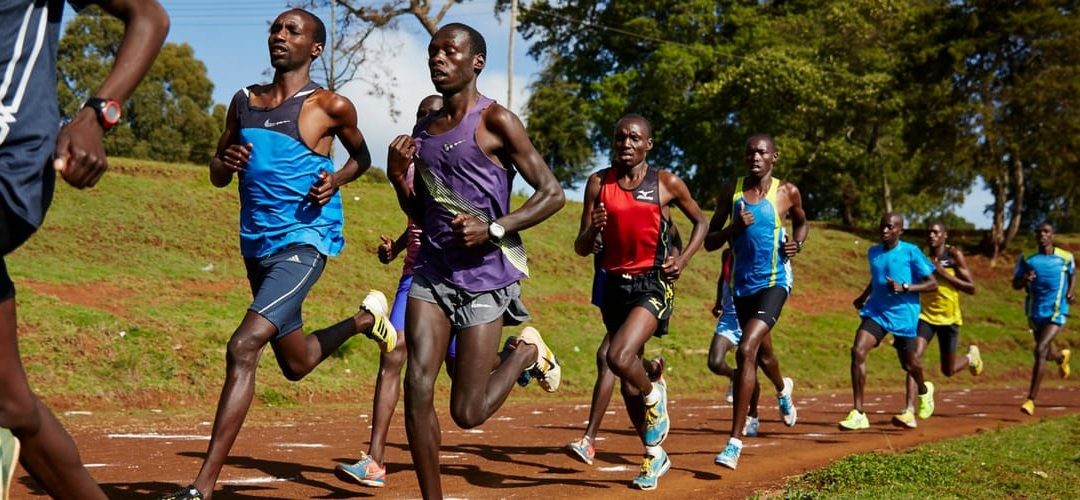
“It was tough for me when I was suspended,” she said. “There was no one to turn to.”
Sumgong, who won gold in the Rio Olympic marathon, said she was close to falling into a depression of her own following her doping scandal.
Speaking from experience, she said Athletics Kenya needs to provide counselling for athletes who are going through tough times, whether due to doping bans or for other reasons.
“There are athletes who might end up being banned for committing errors unknowingly and it can affect them mentally,” she said. “Athletics Kenya needs to come up with a counselling department because these people are also human despite having done something wrong.”
Wilfred Bungei is another Kenyan athlete who has dealt with depression, although not because of a doping scandal. In 2008, Bungei won Olympic gold in the 800m, and soon after retiring from professional racing in 2010, he became an alcoholic.
“There is a lot of loneliness up there when [athletes] are winning and success has come to their lives,” Bungei told the Daily Nation. “They are, therefore, easily lured into alcoholism, promiscuity and other destructive lifestyles just to hide from the real monster that brought them down.”
Bungei emphasized the importance of athlete support, and he agreed with Sumgong, stating that Athletics Kenya has a duty to look after its athletes. Athletics Kenya has yet to comment on the possibility of starting a support or counselling program.
by Ben Snider-McGrath
Login to leave a comment
Kenyan marathon runner Vincent Kipsegechi Yator, handed four-year doping ban
Another Kenyan athlete has been handed a doping ban after marathon runner Vincent Kipsegechi Yator was suspended for four years following positive tests for a number of banned substances.
Yator, who represented his nation at the Commonwealth Games and African Championships in 2010, was given a four-year-ban, having provisionally been suspended after testing positive in October.
The Athletics Integrity Unit announced the sanction after the 30-year-old was hit with two charges.
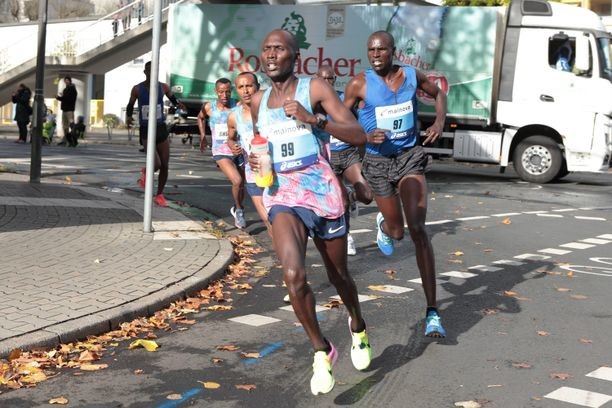
The first charge was related to the admitted presence of metabolites of testosterone after a test was taken on July 7 of last year, while the second was related to the alleged use of several banned substances including exogenous testosterone, trimetazidine, prednisone, prednisolone and clomiphene.
The Kenyan argued that the presence of prednisone and prednisolone came from medication he was taking after he was allegedly in a road accident in 2018.
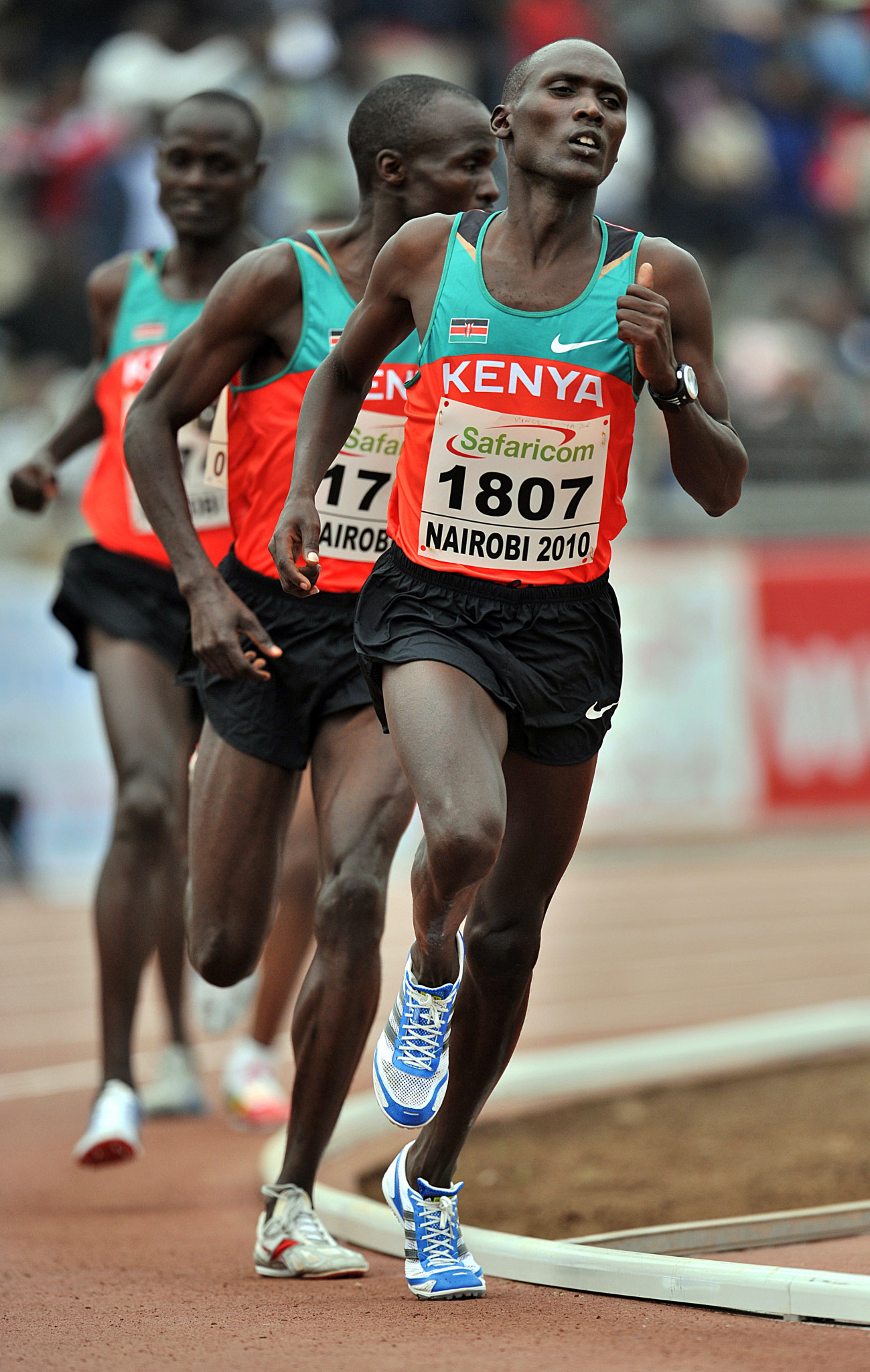
Yator's positive test came immediately after he broke his marathon personal best at the Gold Coast Marathon in Australia with a time of 2 hours 9min 59sec.
At the Delhi 2010 Commonwealth Games, Yator finished fourth in the men's 5,000 metres behind team-mate Eliud Kipchoge - future holder of the marathon world record - who came second.
He also finished third at the Honolulu Marathon in Hawaii in December 2018.
Yator will not be eligible to compete again until October 1 2023 and has had all results from April 10 to October 1 in 2019 expunged.
He follows a string of high-profile Kenyans to test positive recently, with the most famous name of them all being Beijing 2008 Olympic 1,500m champion Asbel Kiprop.
by Michael Houston
Login to leave a comment
Kenya's Asbel Kiprop said, Someone badly wanted to bring me down, but Asbel promises to clean his name
His name Asbel means determined.
And determination is the driving force behind three-time World 1,500 meters champion Asbel Kiprop in his quest to unravel the truth behind his doping saga.
The 2008 Beijing Olympic Games 1,500m champion, who is now serving a four-year ban for a doping offence, believes getting to the bottom of the saga will enable him to leave a legacy in athletics, one that will not only expose what he terms “corrupt athletics systems” but will also enable him to defend the game and clean athletes.
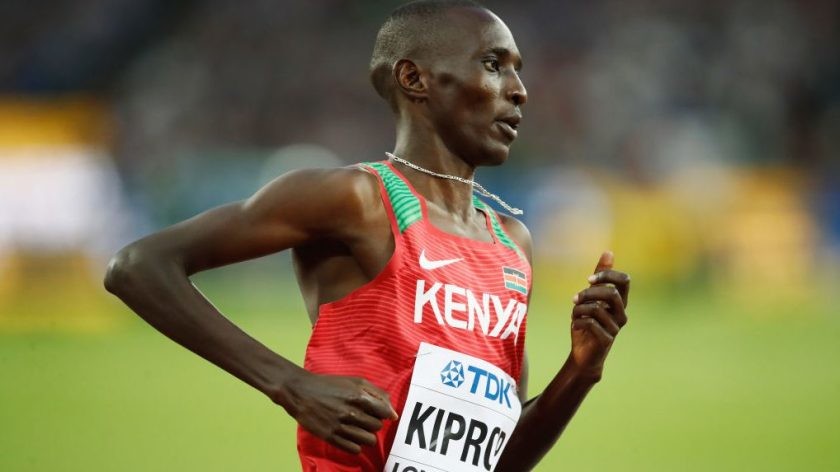
After clearing his name, former African Games and Africa 1,500m champion Kiprop, hopes to compete for Kenya again, perhaps at the 2022 World Championships in Oregon, or just for a short season.
Kiprop, 30, was provisionally suspended on May 2, 2018 after he tested positive for banned performance-enhancing substance Erythropoietin (EPO) in an out-of-competition test in November 2017.
Kiprop, the 2007 World Under-20 Cross Country champion, maintained his innocence but he was eventually found guilty of using EPO and was handed a four-year doping ban in April last year.
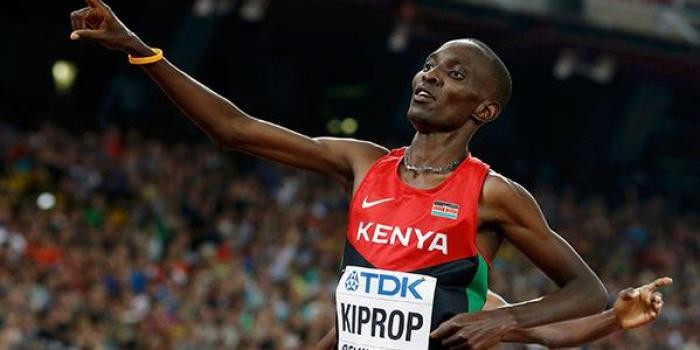
Kiprop will be eligible to compete by February 2022.
“I strongly believe there was an error somewhere that World Athletics and Athletes Integrity Unit (AIU) must really still look at and rectify. I won’t even be looking at compensation but to clear my name,” Kiprop told Grace Msalame in an NTV lifestyle show ‘Unscripted.’
“Even if I finish the ban, I will not relent in my quest to find the truth. I will not allow the truth to die even if it will take me a decade or more. I will fight to clear my name. I also don’t want to go down on record as being the person who ruined Kenya’s rich athletics heritage,” said Kiprop, who said that he is back in training read to make a return to athletics, his beloved sport.
Kiprop, who has hinted at hiring a European lawyer who is also a known scientist to pursue his case to the end, said he would like to hang his spikes honorably.
“I never planned to end my athletics career this way, and that is why I am so determined,” said Kiprop, who is now based at Police Training College, Kiganjo. “I know it will be hard for me to return strongly to the level where I was, but I have a point to prove since I still have the energy to run.”
Kiprop said he didn’t have enough money to appeal his four-year ban through his former lawyer Katwa Kigen.
“By the time I was ready to appeal my ban, AIU told me I was time-barred and that is why I believe there is hope with my new scientist lawyer,” the lanky athlete said.
But who would have loved to bring Kiprop down and end his illustrious athletics career?
Kiprop believes that from the way AIU handled his case, he is the victim of a complicated web. He believes someone wanted to fix him after he had defended his Rosa and Associati management from doping allegations back in 2014.
by Ayumba Ayodi
Login to leave a comment
Former Marathon World Record holder Wilson Kipsang banned in doping case
Wilson Kipsang, a former marathon world-record holder and Olympic bronze medalist, was provisionally suspended for whereabouts failures and tampering, according to doping officials.
The ban came from the Athletics Integrity Unit, track and field’s doping watchdog organization. Athletes must provide doping officials with locations to be available for out-of-competition testing, and missed tests can be tantamount to failed tests.
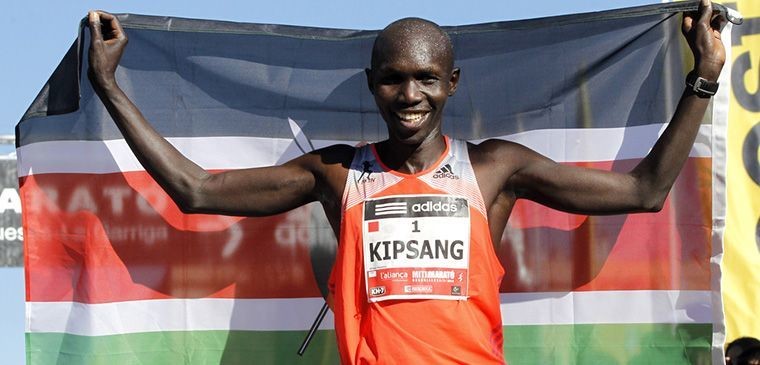
Kipsang, a 37-year-old Kenyan, won major marathons in New York City, London, Berlin and Tokyo between 2012 and 2017.
He lowered the world record to 2:03:23 at the 2013 Berlin Marathon, a mark that stood for one year until countryman Dennis Kimetto took it to 2:02:57 in Berlin. Another Kenyan, Eliud Kipchoge, lowered it to 2:01:39 at the 2018 Berlin Marathon.
Kipsang, the 2012 Olympic bronze medalist, last won a top-level marathon in Tokyo in 2017. He was third at the 2018 Berlin Marathon and 12th at his last marathon in London last April.
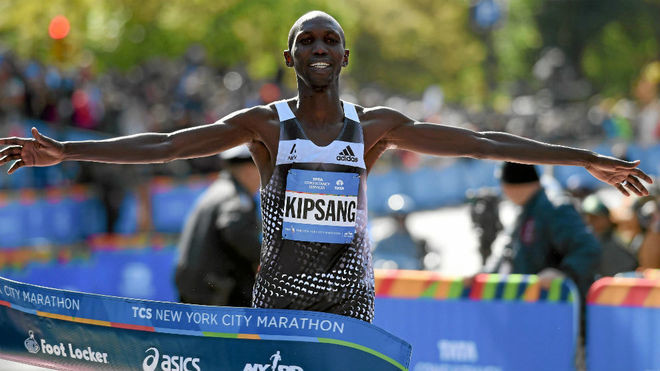
Kipsang is the latest Kenyan distance-running star to receive a doping-related ban.
Rita Jeptoo had Boston and Chicago Marathon titles stripped, and Jemima Sumgong was banned after winning the Rio Olympic marathon after both tested positive for EPO. Asbel Kiprop, a 2008 Olympic 1500m champion and a three-time world champ, was banned four years after testing positive for EPO in November 2017.
Login to leave a comment
Radcliffe admits to mixed feelings as Kosgei breaks marathon record
Paula Radcliffe's world marathon record, which had stood imperiously for over 16 years, has been obliterated by Brigid Kosgei at the Chicago Marathon.
The 25-year-old Kenyan ran 2:14:04 to beat Radcliffe's best of 2:15:25 by an astonishing 81 seconds.
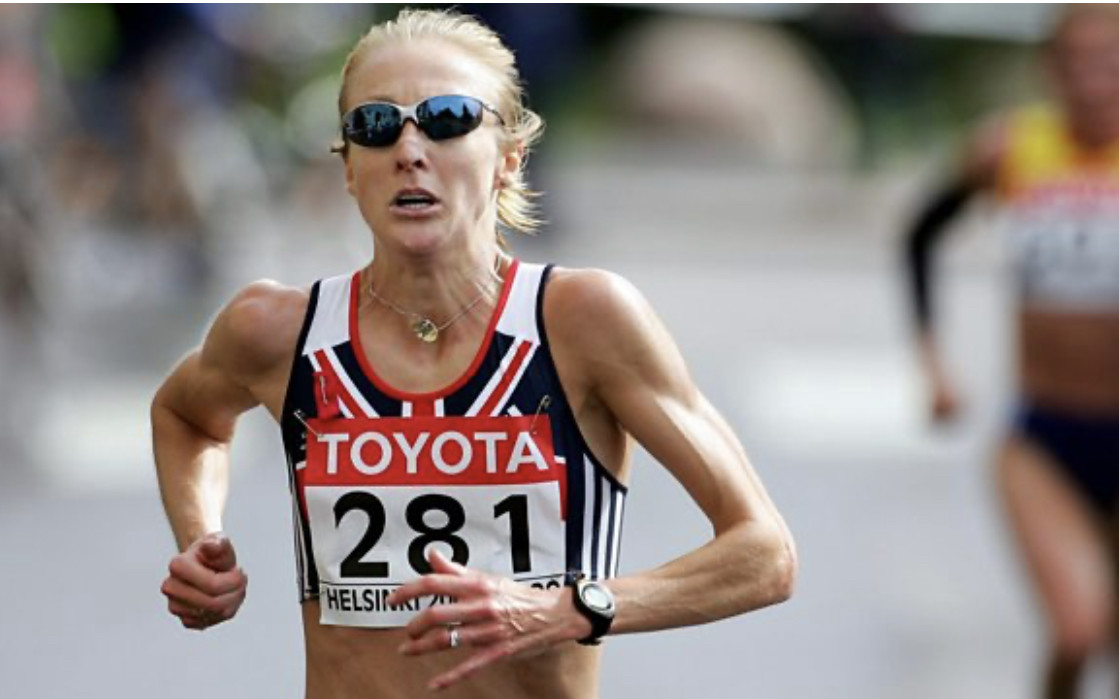
The whispers all week in Chicago had been that Kosgei was intending to make a serious assault on Radcliffe's time. In cold and sunny conditions - perfect for the marathon - she knew the attempt was on, especially when the winds died down yesterday morning.
Kosgei immediately set out her stall by going through five miles in 25:10, way inside world record pace.
Some feared that she had massively overcooked her pace and would eventually boil over. But even though Kosgei slowed her pace she still went through halfway in 66:59, over a minute faster than Radcliffe's time in setting her world record in 2003.
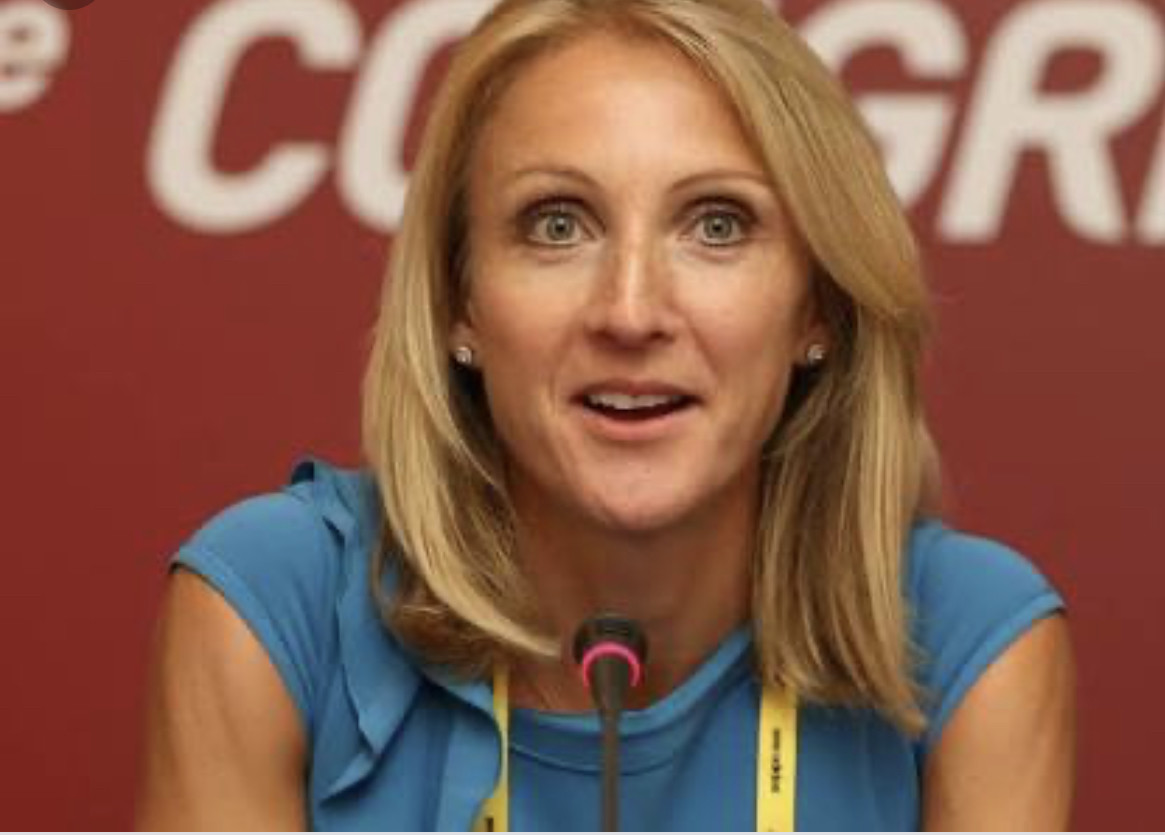
There was a moment when Kosgei appeared to not quite be as comfortable, but when she ran the 5km between 25km and 30km in 15:45 it was clear that the record was in her grasp. And so it proved.
Afterwards, an elated Kosgei admitted: "I am feeling good, and I am happy because I was not expecting this. But I felt my body was moving, moving, moving so I went for it."
Meanwhile, Radcliffe, who posed for photographs with the Kenyan afterwards, admitted it was a bittersweet moment.
"If you had told me when I set it in 2003, that it would last that long I wouldn't have believed it," she said. "But I always knew this time would come - and when I saw how fast Brigid was running I knew the record would go if she could maintain her pace."
If there is one question mark over Kosgei's thundering achievement it is that her agent, Federico Rosa, has had a high number of athletes who have been banned. They include Asbel Kiprop, the former world 1,500m champion, Jemima Sumgong, the 2016 London marathon and Olympic champion, and Rita Jeptoo, who won this race in 2013. However, there is no suggestion of wrongdoing by Kosgei or Rosa.
Some will also point out that Kosgei was wearing the Nike Next% training shoes, which have been estimated to give between 60-90 seconds of performance benefit over other shoes. But on a stunning day in Chicago, few appeared to care as she blasted into the history books.
Login to leave a comment
Bank of America Chicago
Running the Bank of America Chicago Marathon is the pinnacle of achievement for elite athletes and everyday runners alike. On race day, runners from all 50 states and more than 100 countries will set out to accomplish a personal dream by reaching the finish line in Grant Park. The Bank of America Chicago Marathon is known for its flat and...
more...Kenya drug cheats now to be blocked from all international competitions
The Kenyan government has backed a move by Athletics Kenya (AK) to block all cheats from representing the country in international championships.
Sports cabinet secretary Amina Mohammed said in Nairobi that for the country to reverse the damage doping has on its athletes, they must stop any elite runner banned for doping from competing in international races beyond the Olympics, World Championships, Commonwealth Games and Africa Games.
"We must stop them. Athletes must understand that once they fail doping test, its over for them, even if they serve their suspension from active competition, we will not allow them to leave the country to compete abroad," Mohammed said this week in Nairobi.

Kenya has had six cases of doping in the last seven months, joining over 50 athletes who have been banned since the Beijing 2008 Olympic Games including 2016 Rio Olympics marathon champion Jemima Sumgong, half-marathon world record holder Abraham Kiptum and former Olympic champion and three-time world title winner in 1,500m Asbel Kiprop.
Kenya is in Category A along with eastern African rivals Ethiopia, Belarus and Ukraine, described by the IAAF as "member federations majorly at risk of doping."
Mohammed said the move by the International Association of Athletics Federation (IAAF) to have athletes tested more before major athletics championships will also help eradicate the vice.
"Kenya is ranked in category A and athletes must go through stringent measures like three tests out of competition and one in competition prior to international competitions. We must support these measures hence we shall not allow dopers to go and shame this country again," said Mohammed.
Athletics Kenya (AK) president Jack Tuwei said Kenya has enough talent to win clean and no cheat should be allowed to put on the national jersey.
"For four years running, we have been on the watch list of IAAF. Last year that was upgraded because athletes don't want to listen to advice on anti-doping," he said.
Login to leave a comment
Kipsang said doping will ruin the country’s athletics glory if proper education is not conducted
Login to leave a comment


